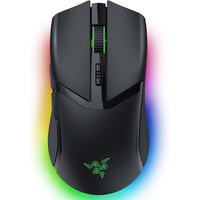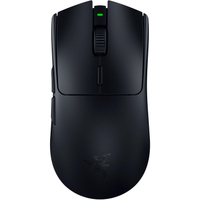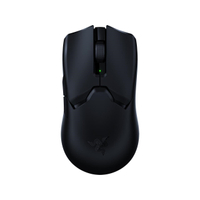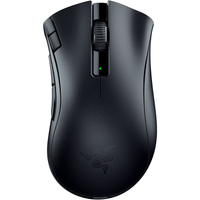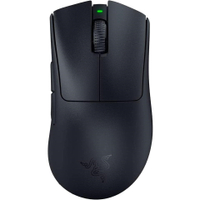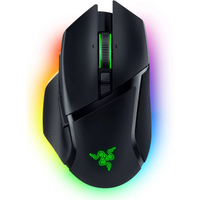The best Razer mouse 2025: all the top models compared
All the best Razer mouse options for every player and budget
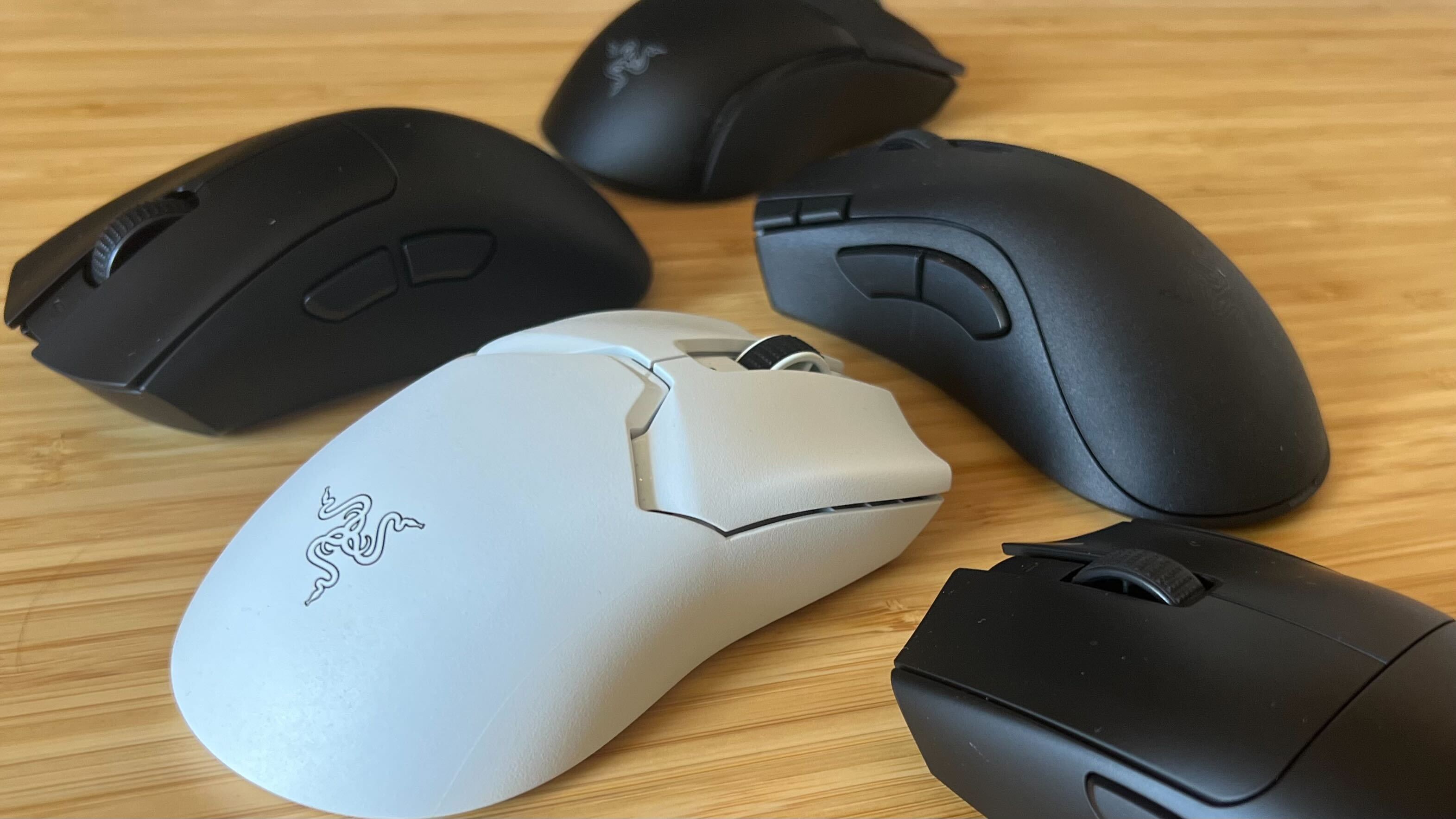
It's no wonder Razer mice have dominated the scene for so long. These rodents come from a pedigree line of gaming tech, offering everything from the latest sensor and feature developments to unique customization options and more. With several different lines and models within those lines, finding the best Razer mouse for you can be tricky.
Before we get into the details of our top picks, though, it's worth noting that Razer produces some of the best gaming mouse options on the market. That means the latest and greatest releases can sometimes carry some particularly heavy MSRPs. Luckily there are often cheaper versions of these mice up for grabs shortly after release - you'll be able to tell these devices by the X marker in their names. You'll be dropping a few premium features, but still picking up a solid pointer.
Razer produces mice under a few series', the Viper, Basilisk and Naga models tend to carry the higher price tags, while Deathadder, Orochi, and Mamba lines come in cheaper. Thankfully, we've had our hands on a massive range of these devices, putting each one through its paces over the course of weeks to determine its value for money and overall performance. That's why we're rounding up all the best Razer mouse models across all lines right here.
The quick list
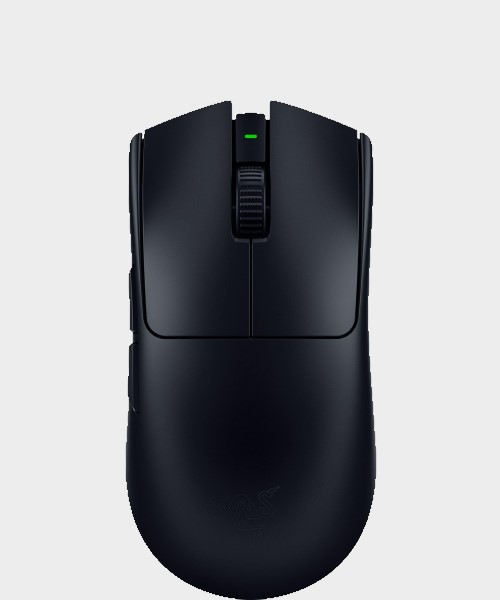
Best overall
The latest in Razer's high-end Viper line looks a little different to previous releases. 8K HyperPolling, a 54g weight, and 35K sensor make it an FPS beast.
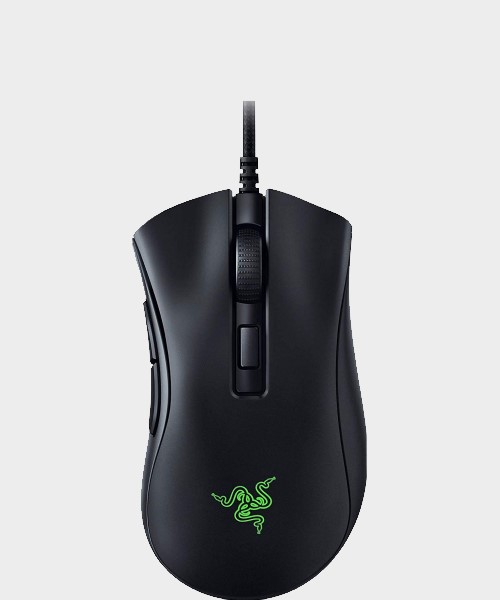
Best budget
The Razer DeathAdder V2 Mini is under $35 and still manages to pack a solid set of specs. It's a smaller form factor but it's still comfortable for smaller and medium hands.
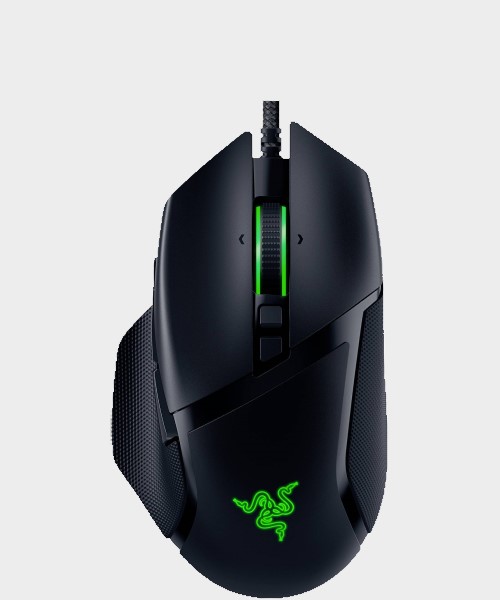
Best value
The Basilisk V3 is an all-star that doesn't ask for much cash at all. You're getting plenty of extra controls, an ergonomic shape, and a more than capable sensor.
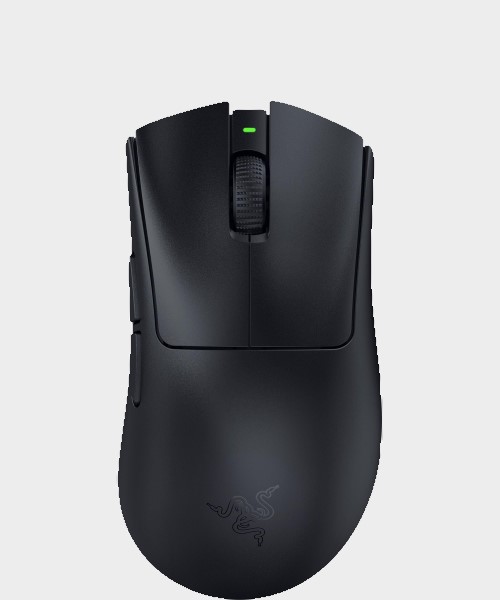
Best value wireless
This is one of the best mice Razer has released in the last few years, pairing features you'll actually used with a stripped back price.
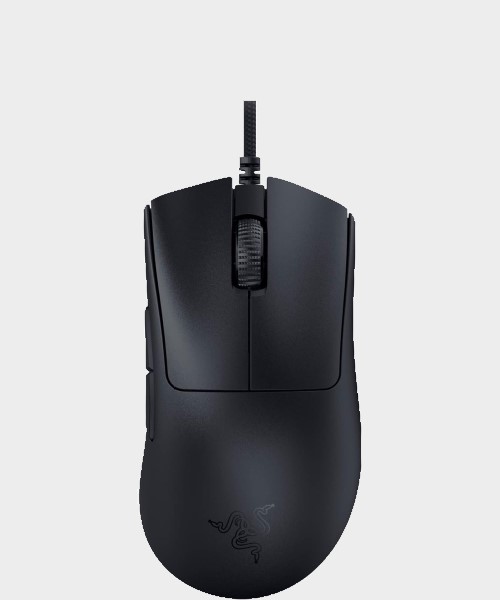
Best wired
The DeathAdder V3 trades the bulk of a battery for a super lightweight 59g wired form factor. This is a wider device best suited to larger hands.
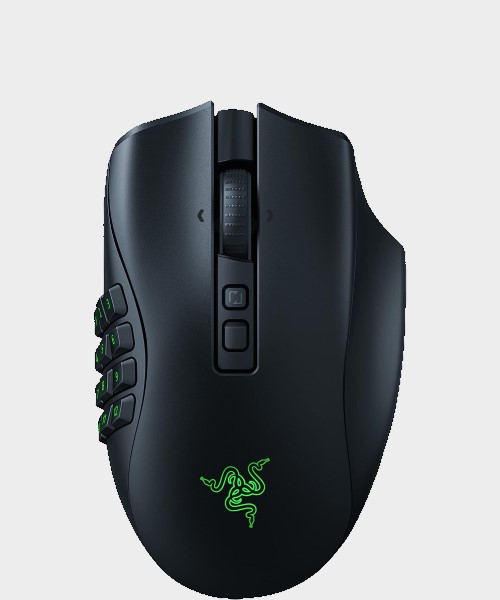
Most versatile
The Naga V2 Pro packs three different side panel options for ultimate versatility. Its squat shape means it's not going to be the most comfortable for everyone, but it's certainly flexible.

I've been reviewing gaming accessories at GamesRadar+ for over four years, first in a freelance capacity and then as Managing Editor for the last three years. Mice were some of the first peripherals I was entrusted with all those years ago, and their performance, design, and value for money continues to be a focus point in my day to day work in 2024.
Recent updates
March 6 - This page has been updated with more details around our rating system, with additional details added to the score of each entry. In the meantime, I'm currently testing the Razer Basilisk V3 Pro for inclusion in this guide.
The best Razer mouse overall
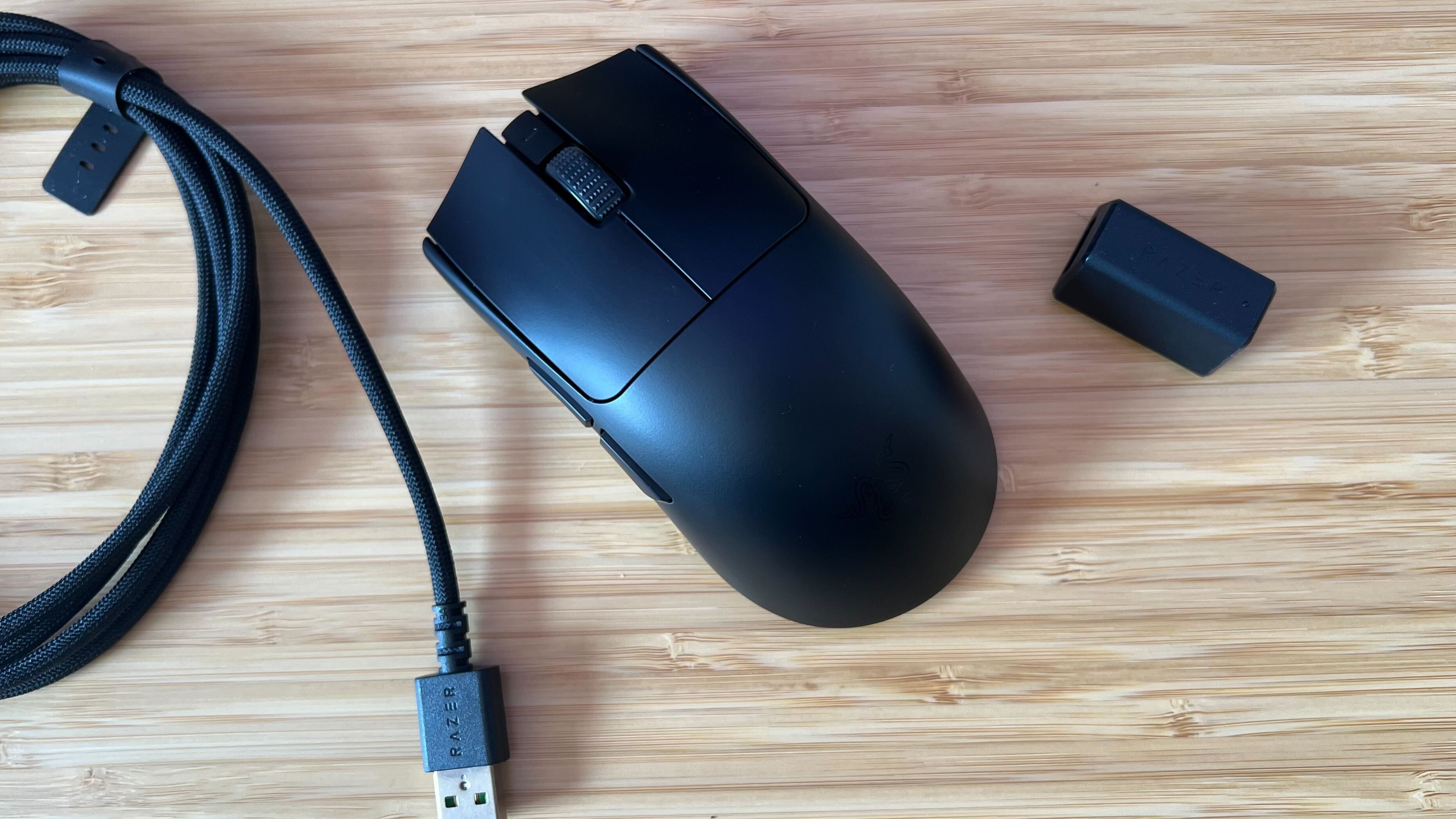
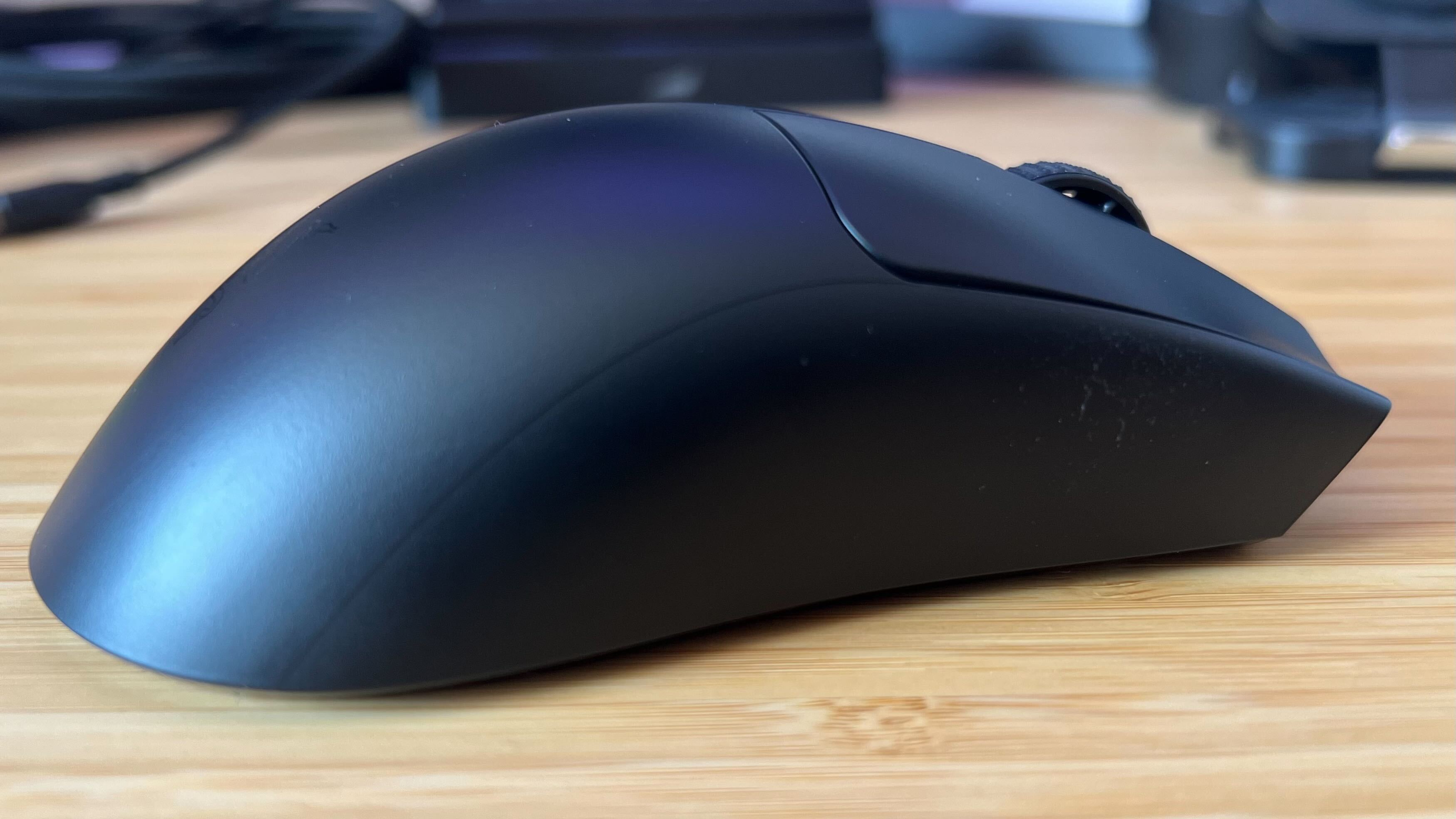
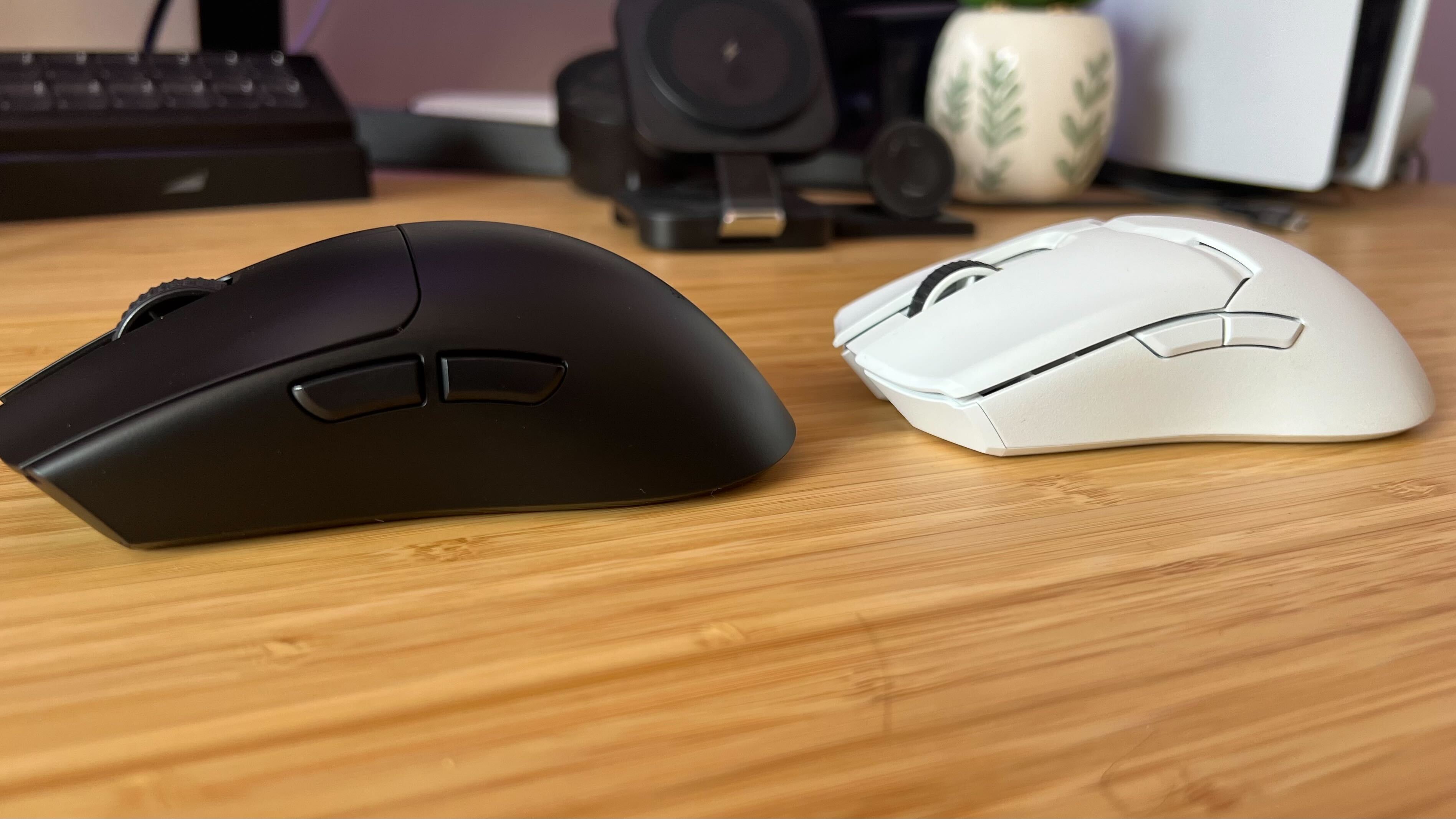
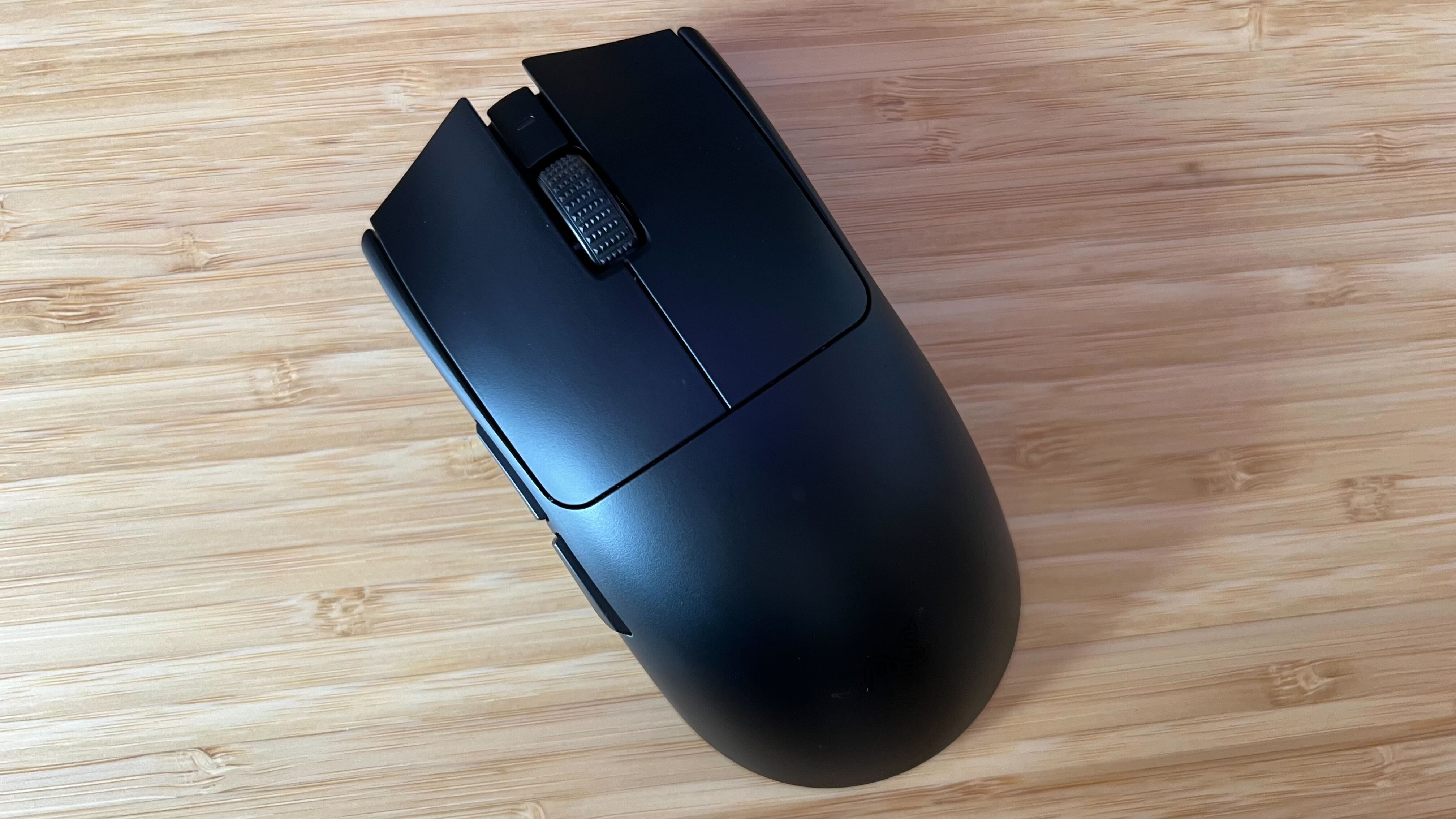
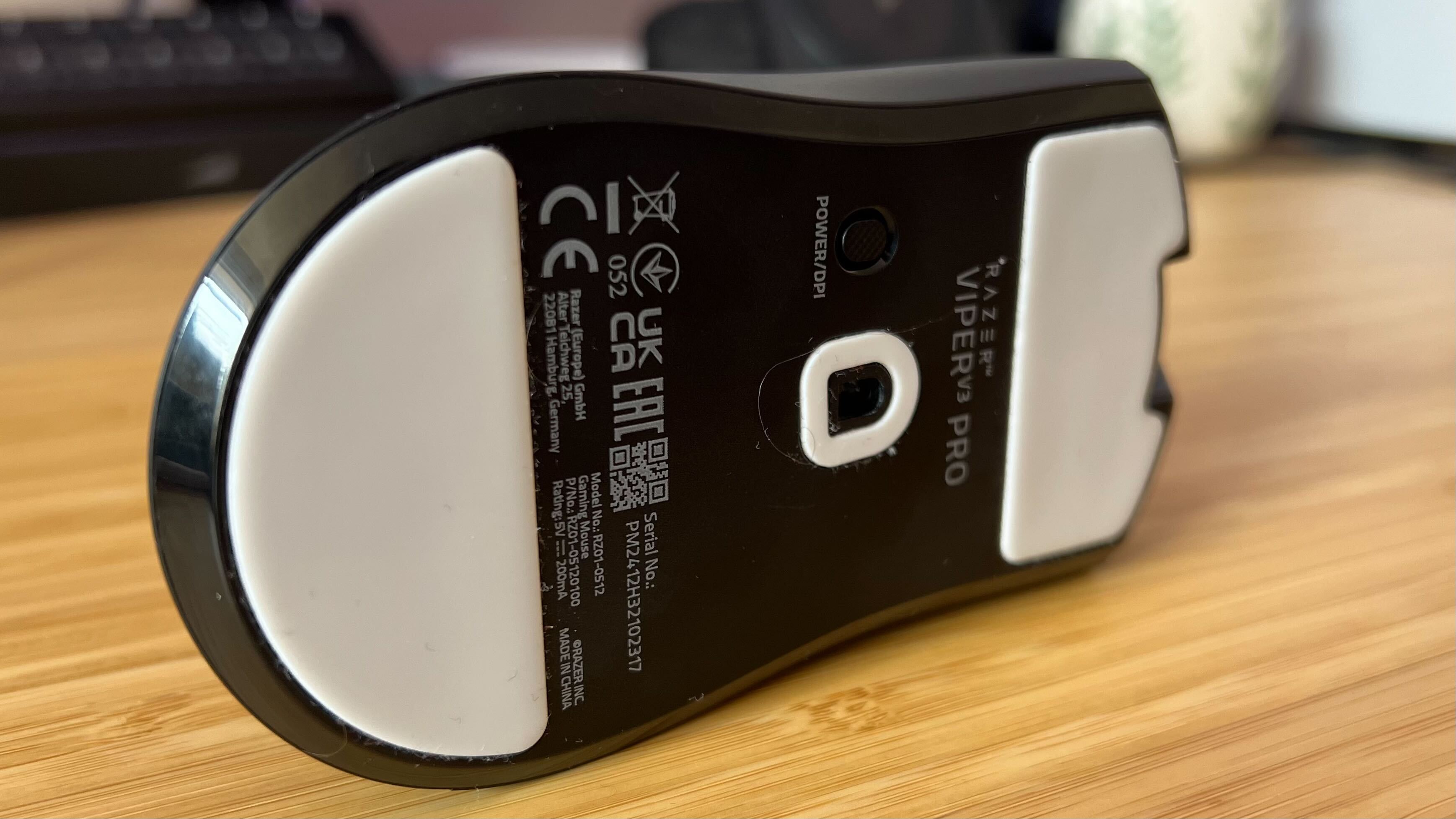
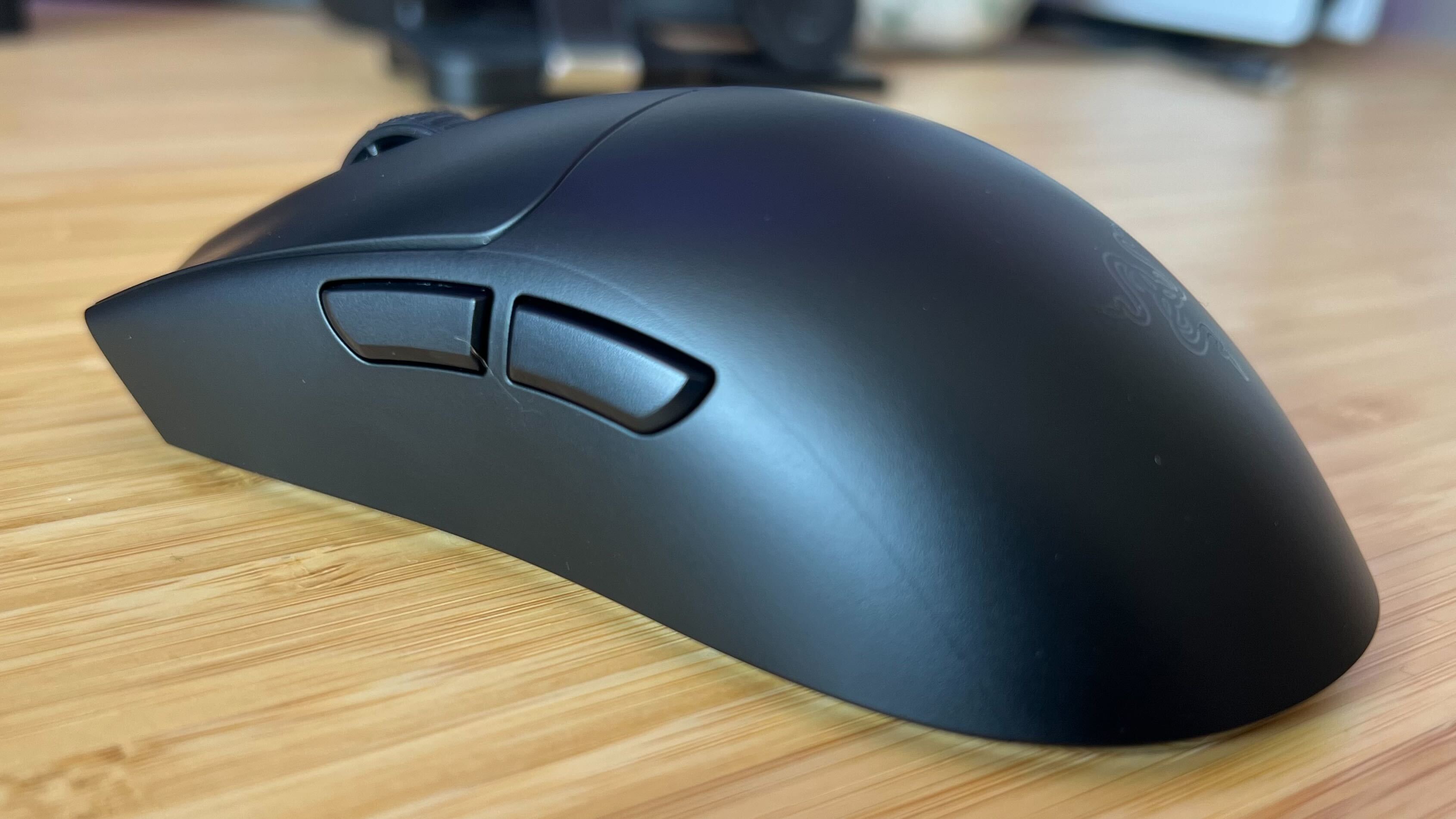
Specifications
Reasons to buy
Reasons to avoid
The Razer Viper V3 Pro is the newer version of the V2 Pro that previously occupied the top spot on this list, bringing a faster sensor and more ergonomic shape into the fold.
✅ You play competitively: The V3 Pro is an absolute speed-demon, with 8K HyperPolling, a super reliable sensor, and a flyweight design.
✅ You don't like flat FPS mice: FPS mice traditionally sacrifice a little comfort to remain so nimble, but the V3 Pro adds a chunkier form factor that still remains comfortable after long sessions.
✅ You need a wireless connection: Low weight wired gaming mice are far easier to find, but if you don't want to string a cable around with you this is where you need to be looking.
❌ You want easy portability: If you can make use of the 8K HyperPolling dongle then it's a great addition, but you will need to carry an extra cable with you considering there's no easy USB receiver in the box.
❌ You prefer the flat FPS shape: Of course, if you never had a problem with skinny FPS mice then the extra movement you get from a flatter design will be missed here.
Design: The Viper V3 Pro was launched some months after its cheaper alternative, the Razer Viper V3 Hyperspeed. However, it shares a pretty much identical design. That's a marked step away from the Vipers of the past, which previously prioritized a skinny form factor with a flat top. This kept the weight down and ensured the pointer was nimble on the battlefield. By contrast, the V3 Pro opts for a chunkier frame, with more emphasis on ergonomic comfort. In testing, we weren't able to flick things around quite so easily (and preferred the textured surface of the Viper V2 Pro compared to the matte soft-touch plastic here). However, if you're tired of cramping around a smaller FPS mouse this could be just the thing you're looking for.
Features: Razer is primarily focused on speed here. That means the V3 Pro's feature-set is designed around ensuring optimal reliability from the sensor and the fastest of response times between the pointer and your computer. A Focus Pro 35K optical sensor is a small nudge up the scale from the model used in the V2 Pro, and very few players will actually use the top end of that range. However, the 8K HyperPolling dongle is now included in the box as standard.
That's a double-edged sword. Yes, you're getting superb speeds straight out the gate, but only particularly competitive players are going to notice or even care about milliseconds like this. Plus it also means you don't get an easy USB receiver - you'll be carrying a cable around in your bag to connect this device wirelessly.
This thing can run at insane sensitivities while still feeling controllable and accurate.
Razer Viper V3 Pro review
Performance: Razer's diligence around speed and accuracy has paid off. It's rare to find an FPS gaming mouse that actually makes a tangible improvement on your gameplay. Normally, high-end pointers like this are meant to allow high-end players to reach their full potential. They often have no consequence for everyday or more casual competitors. However, we noted a particular ease to finding a target when testing the V3 Pro, making for more precise play overall - across both faster and slower titles.
Verdict: The Razer Viper V3 Pro is the fastest gaming mouse the brand has ever produced, and it sits at the top of Razer's flagship range for a reason. This rodent is focused on speed, comfort, and precision, making it the best option on the market right now.
Read more: Razer Viper V3 Pro review
Comfort | 4/5 | The larger shape makes the Viper V3 Pro more comfortable than its flatter predecessors. |
Speed | 5/5 | With a nifty Focus Pro 35K sensor and a low weight, the Viper V3 Pro is one of the most flickable pointers on the market. |
Programmability | 3/5 | HyperShift layering of programmable inputs means those two side buttons stay particularly flexible, but like most FPS-first mice there aren't many more options here. |
Connectivity | 4/5 | Razer's 2.4GHz connection is strong and reliable, and while the Viper does drop Bluetooth functionality - most speed-focused releases do. |
Battery life | 4/5 | The Viper V3 Pro has a solid 95 hour battery life when used in 1,000Hz mode. That's a solid lifetime, though it's not the highest on the market. |
Value | 3/5 | This is one for the professionals, so everyday players aren't going to get the best value for their money out of its spec sheet. Still, within its price tag, it's still one of the more feature-rich devices on the market. |
The best budget Razer mouse
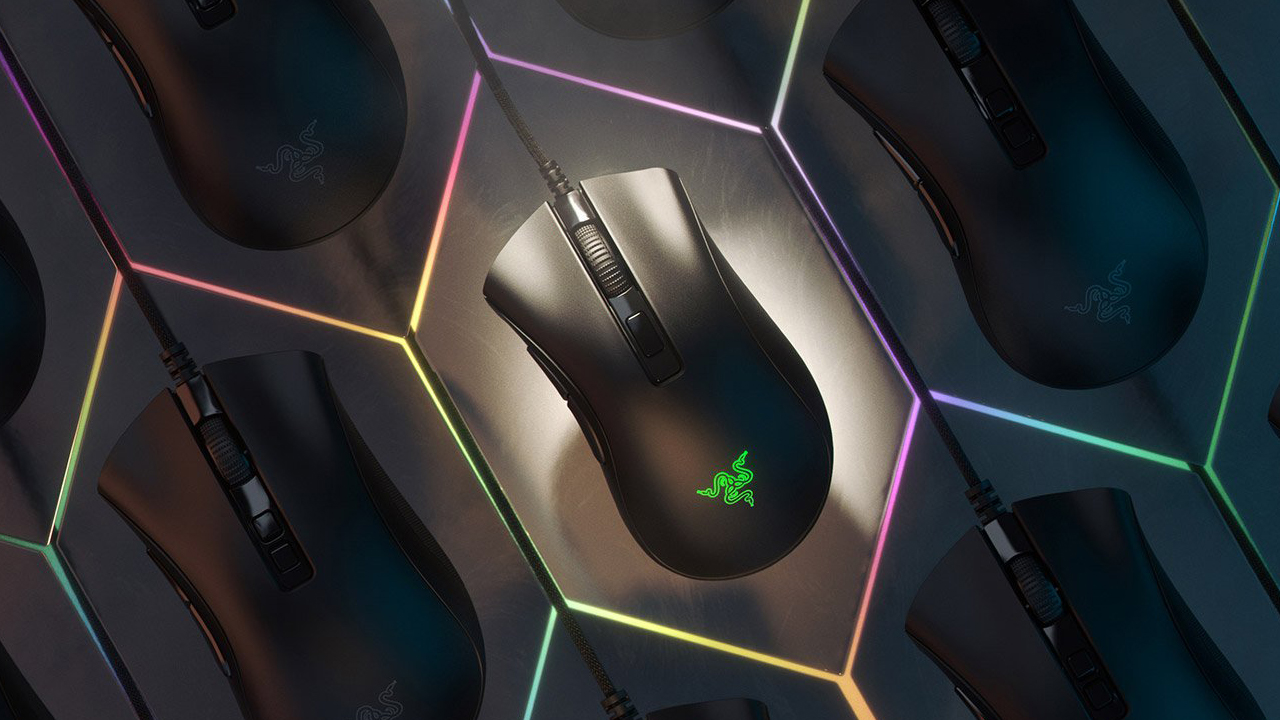
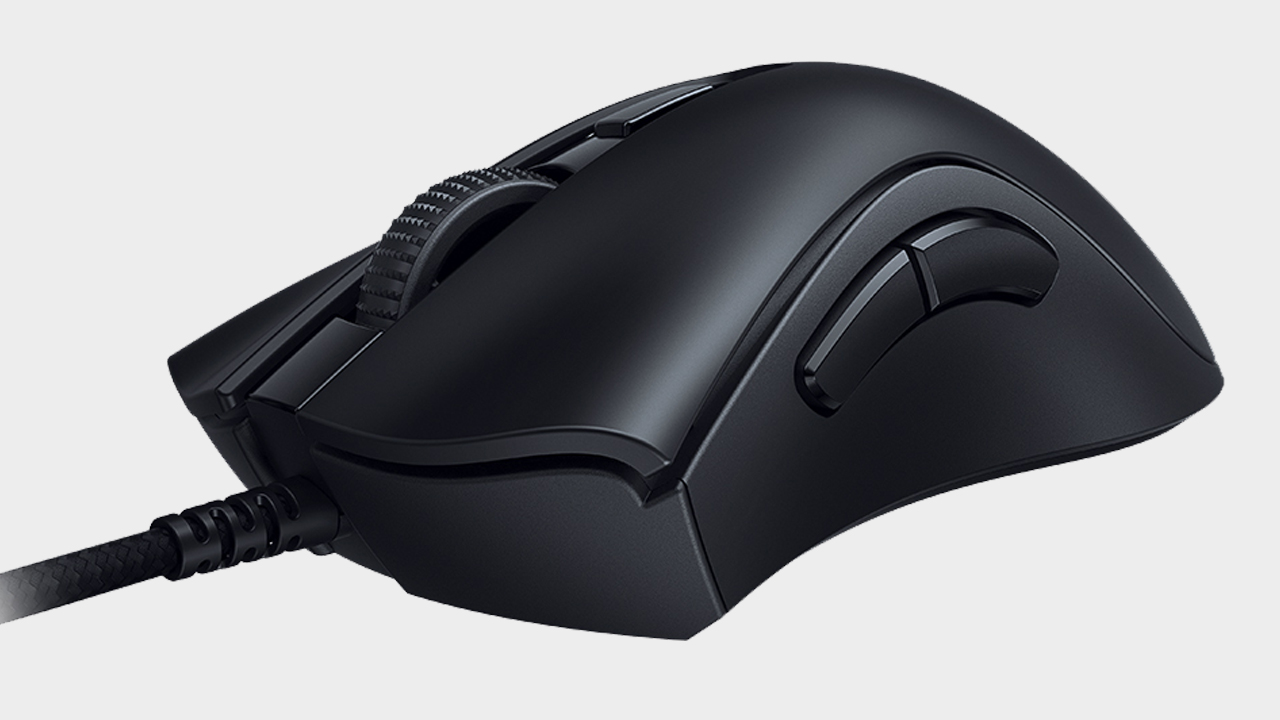
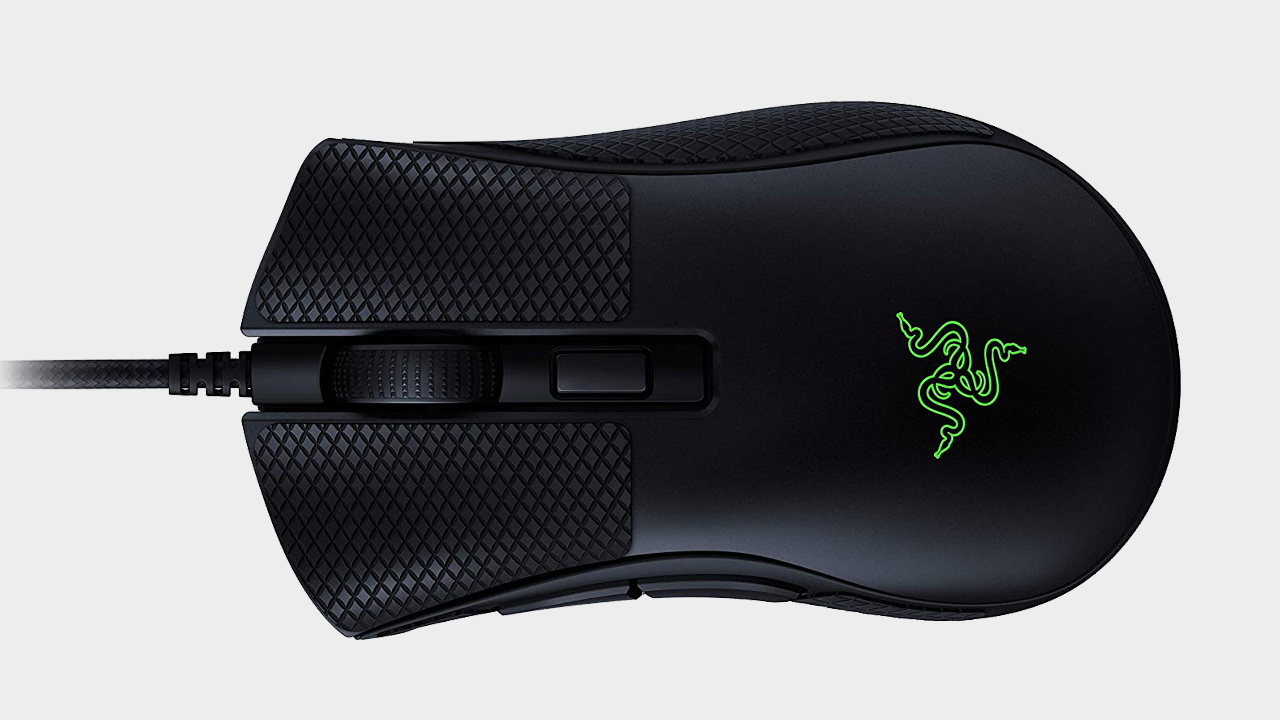
Specifications
Reasons to buy
Reasons to avoid
The DeathAdder line is Razer's budget but still ergonomic series of affordable pointers and the V2 Mini is the cheapest of the bunch. Regularly found for under $25 / £25 (and sometimes on sale for less than $10 / £10), the DeathAdder V2 Mini offers excellent value for money overall.
✅ You want to spend as little as possible: Not only does the V2 Mini start out cheap, it's also regularly featured in additional sales as well.
✅ You have smaller hands: The miniature form factor is, obviously, better suited to those with smaller hands.
✅ You play single-player: The slower speeds in here won't be up to competitive play needs, but if you generally stick to slower single player endeavors you're getting everything you need.
❌ You play faster paced games: Whether it's twitch-reflex single player titles or competitive online arenas you're playing, the Razer DeathAdder V2 Mini won't hold up too well under pressure.
❌ You have larger hands: Those with larger hands will crowd the Mini easily, making accuracy and reliable button presses more difficult.
Design: All of that coming at such a low price is well worth taking note of. In fact, we actually enjoyed the grip tape included with the Mini version far more than the standard grippy surface of the main release, and the sweat absorbent design was much appreciated as well. We also noted that the smaller size meant Razer's snappy switches felt all the more tactile underhand - whereas the full-sized device can feel a little mushy.
Features: The 8,500 DPI is smaller than the 20K in the V2 and the 30K in the V3, but everyday players will rarely need more than this sensitivity anyway. Plus, there's still six programmable buttons to customize to your needs and a set of optical switches to keep things speedy underneath as well.
Performance: The smaller size and zippy switches means the DeathAdder V2 Mini flies across the desk top. While the internal specs aren't enough to pair that extra physical speed with top shelf tracking and polling, there's still plenty of benefit to that slick feel. Everything performs well together here, and while it's not going to be fast enough for more competitive endeavours, everyday play is well served for the cash.
If it's your first gaming mouse or you'll mainly be playing games that don't require twitchy responses, it's perfect.
Razer DeathAdder V2 Mini review
Verdict: Yes, you're dropping some of the performance of the Razer DeathAdder V2 and the newer Razer DeathAdder V3 offers a more comfortable footprint for longer sessions. However, both of these pointers, and the Razer DeathAdder V2 X, come in at well over £60 / $60. If you're after a Razer gaming mouse for a fraction of the usual price, the Mini is your best bet.
Read more: Razer DeathAdder V2 Mini review
Comfort | 3/5 | The smaller chassis isn't going to be for everyone, with some particularly tactile switches. |
Speed | 3/5 | It's not going to reach the 35K heights of the Viper, but very few players need to go that far. |
Programmability | 3/5 | There are six programmable inputs on here, but fewer controls over extra sensor features. |
Connectivity | 2/5 | This is a wired-only design, though that cable is nicely braided and won't drag. |
Battery life | N/A | Row 4 - Cell 2 |
Value | 5/5 | Considering you can get away with spending less than $40 on this device and still pick up a speedy sensor, programmable buttons, and that comfortable form factor the value here is on point. |
The best value Razer mouse
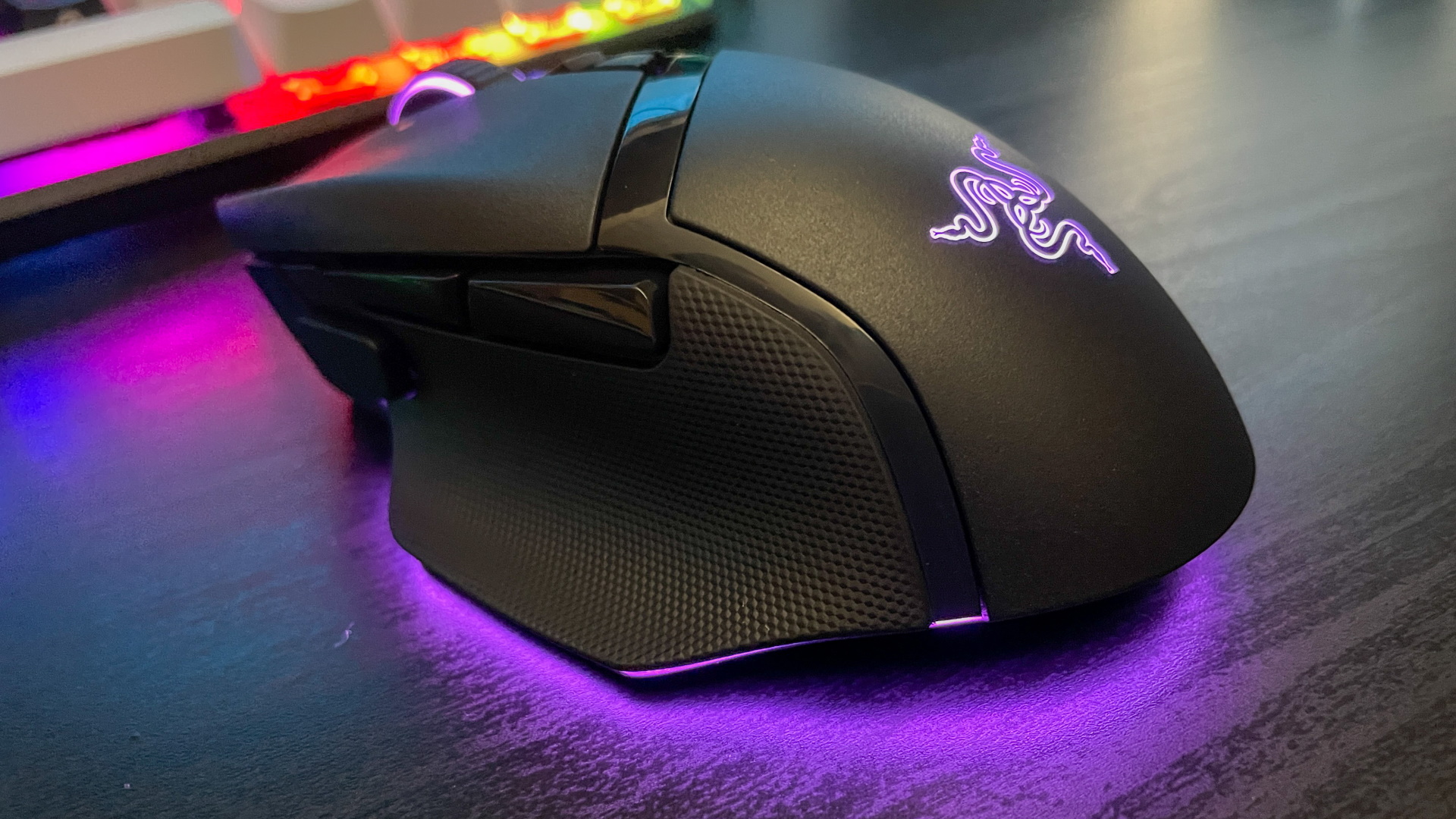
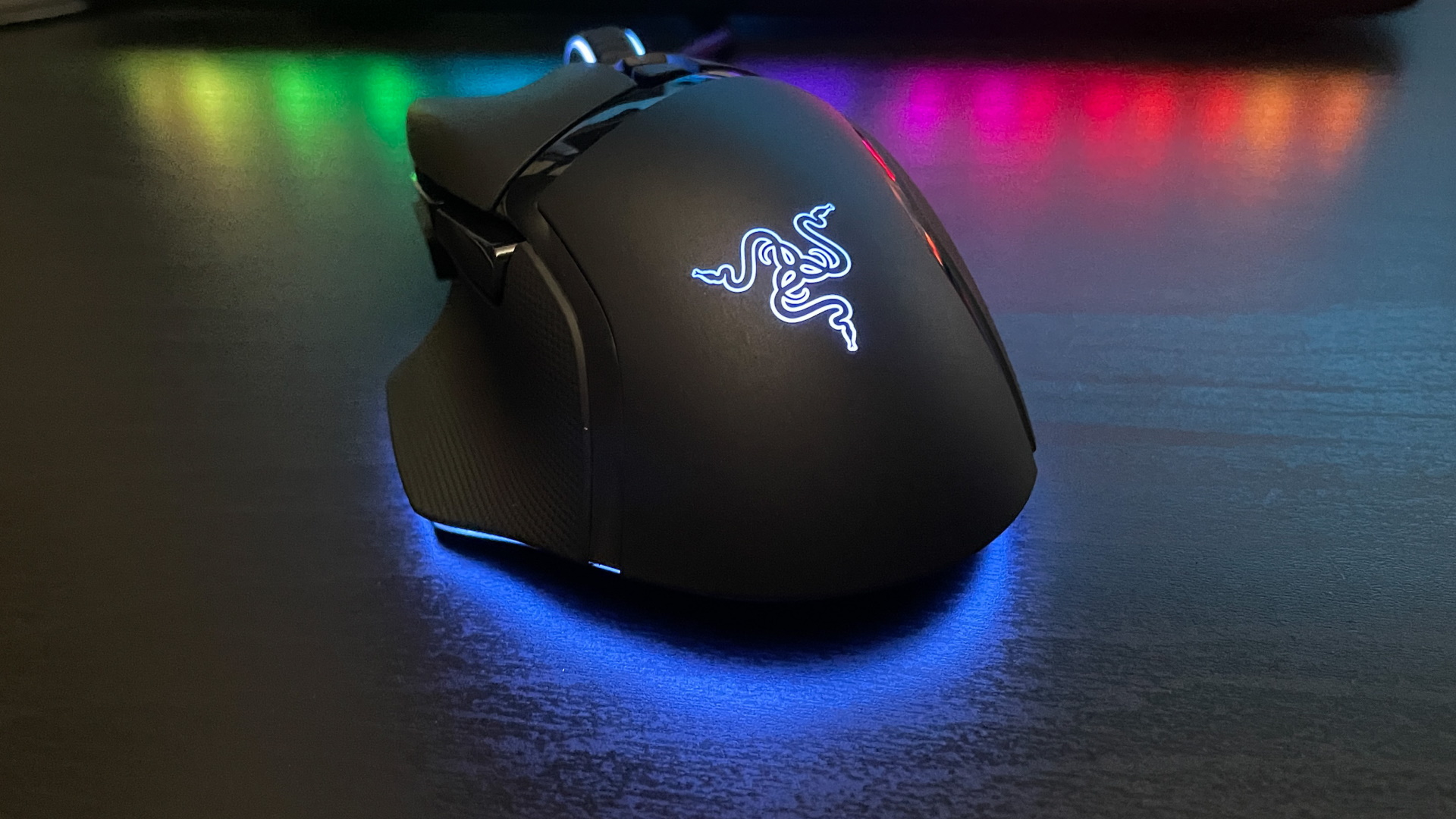
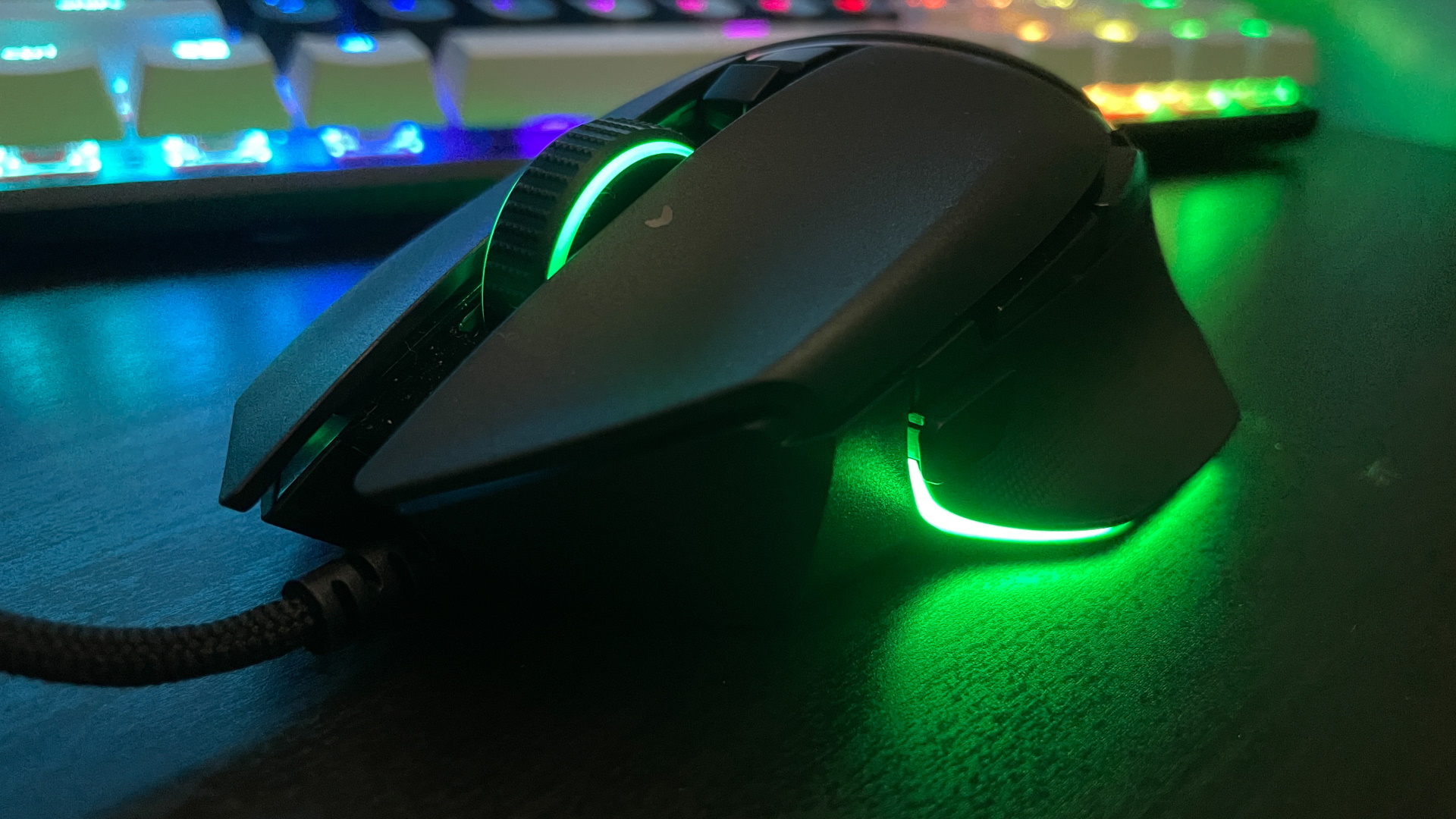
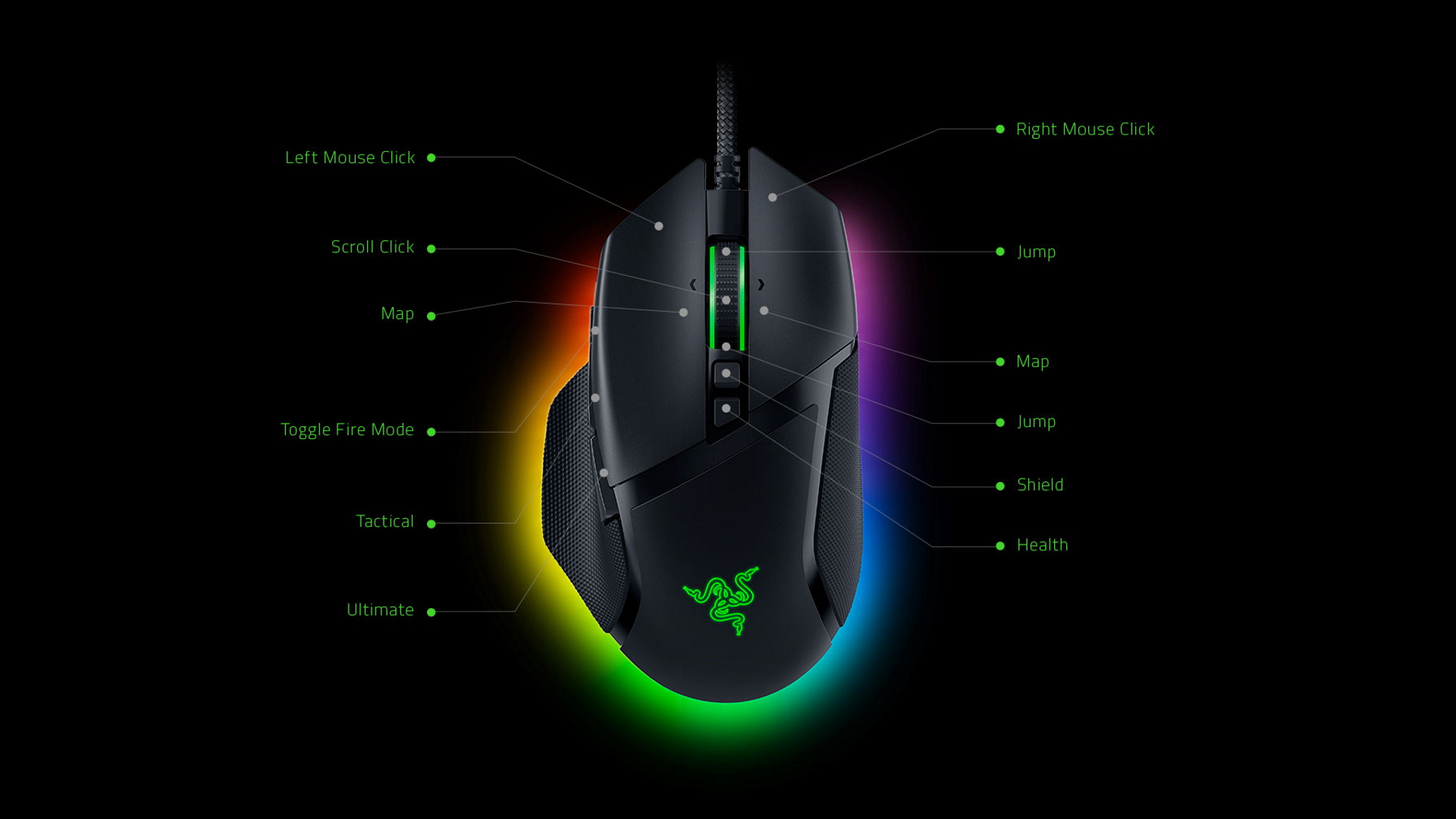
Specifications
Reasons to buy
Reasons to avoid
The Razer Basilisk V3 might not be the best in its range on paper, but it's the best Razer mouse for the majority of players right now thanks to its low price and well-rounded feature set.
✅ You have a varied Steam library: This is a true all-rounder so if you've got a variety of different genres in your backlog there's a feature or spec here that will make them all the more enjoyable.
✅ You don't need a wireless connection: This price is kept down by that cable running out the top - if you don't need a wireless connection, though, there's no point in paying for one.
✅ You prefer a larger design: If you have larger hands or you prefer the stability of a chunkier mouse, this build is going to be particularly comfortable.
❌ You want competitive speeds: Razer has a bunch of mice out with boosted 30K sensors now, so the 26K DPI in here isn't the fastest available.
❌ You need a lightweight device: FPS players will want to prioritize keeping that weight down over additional features like RGB and extra programmable buttons.
Design: The Basilisk V3 is packed full of programmable buttons, but its larger body and longer slope mean it's still effortlessly wieldable on the battlefield and super comfortable to boot. The thumb tray and additional grip support keep things precise, even if that overall weight is higher than other more FPS-focused pointers in Razer's range.
Features: Packed with personalization and RGB options, it's an easy recommendation for the vast majority of players looking for a solid all-in-one experience. You're getting a pretty powerful RGB underglow effect that offers up one of the more innovative LED uses we've seen in a long time, as well as new second generation switches in the main clicks.
Perhaps the most impressive feature to come out of our testing, though, is the smart scroll wheel. You've got two scroll modes here, a tactile and controlled clicky scroll and a free-wheeling spin. The magic happens when you enable the automatic switch function in Synapse. Once enabled (although annoyingly only accessible while running the Synapse software) the wheel will detect when you need to scroll faster and automatically switch its modes for a super smooth experience. This was just as helpful in our day to day work as it was when controlled in gameplay, making this an excellent all-rounder.
There really is something for everyone, all packed into a mid-range price tag that beats the previous iteration.
Razer Basilisk V3 review
Performance: The switches under each main click and slick and responsive, with a lighter actuation point than other Razer mice. That's perfect for more competitive endeavours while the weight and size of the Basilisk V3 keep things grounded for third person adventure action as well. The 26K sensor is speedy enough to keep up with pretty much anything you can throw at it to boot.
Verdict: This is the best Razer mouse for the majority of players, thanks to its comfortable design, genre-agnostic shape, and spoils of extra features. We were switching between profiles set for Borderlands 2, Life is Strange: True Colors, and Planet Coaster and each one felt as natural as the last.
Read more: Razer Basilisk V3 review
Comfort | 5/5 | The larger body shape of the Basilisk line, and its thumb rest and curved design, make for a particularly comfortable hold across a range of hand sizes. |
Speed | 2/5 | This is a heavier device with a slower sensor under the hood. It's still fast enough for everyday play, but it's not winning races against some lighter Razer devices. |
Programmability | 5/5 | There's a wealth of extra buttons in here - more than you'll find on most Razer mice. |
Connectivity | 2/5 | Being a cheaper release, the Basilisk V3 is a wired-only model, though again that cable is drag-resistant and sturdy. |
Battery life | N/A | Row 4 - Cell 2 |
Value | 5/5 | You can't really get much better value than this for the price, unless you're looking for something particularly lightweight. |
The best value wireless Razer mouse
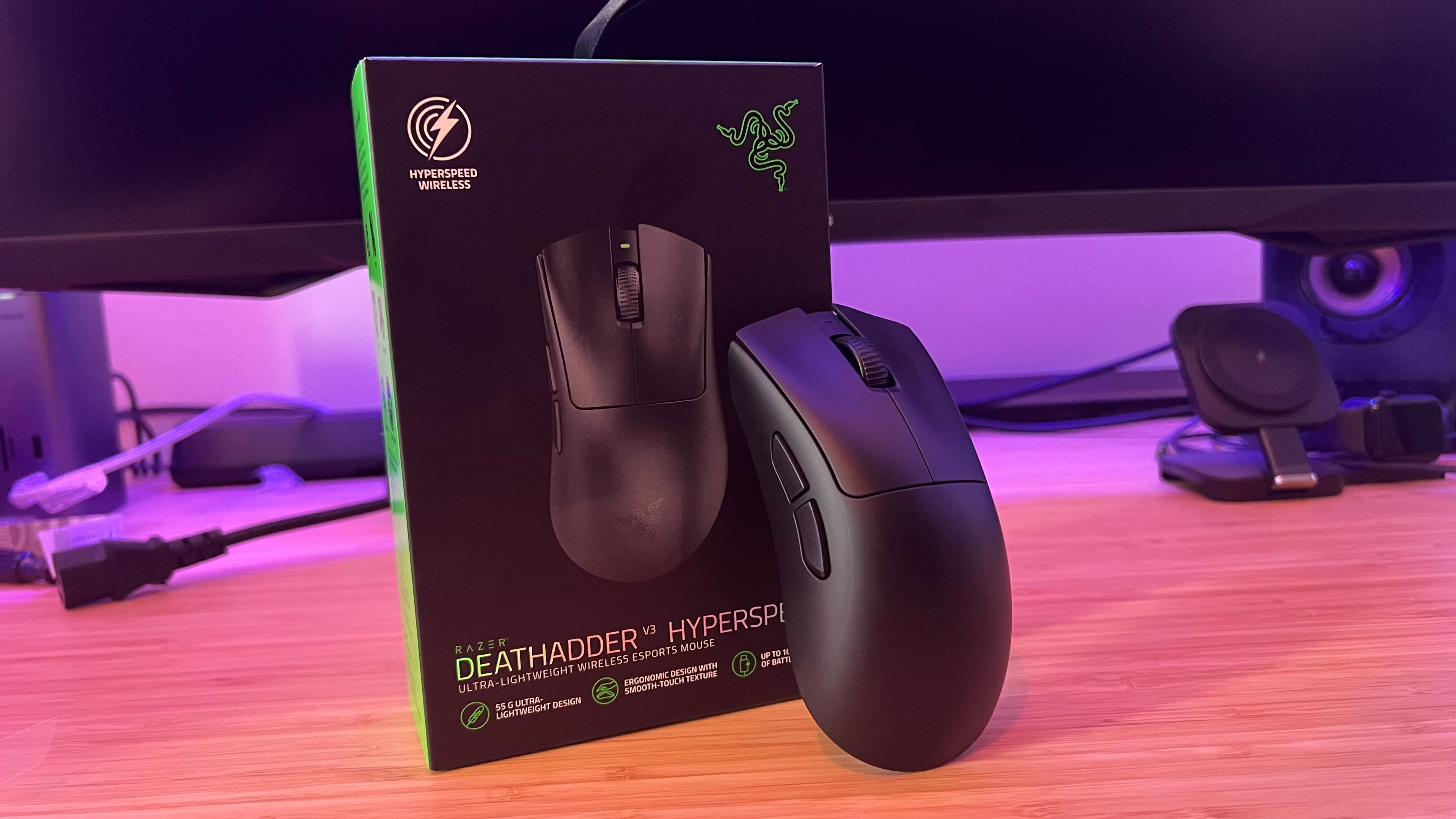
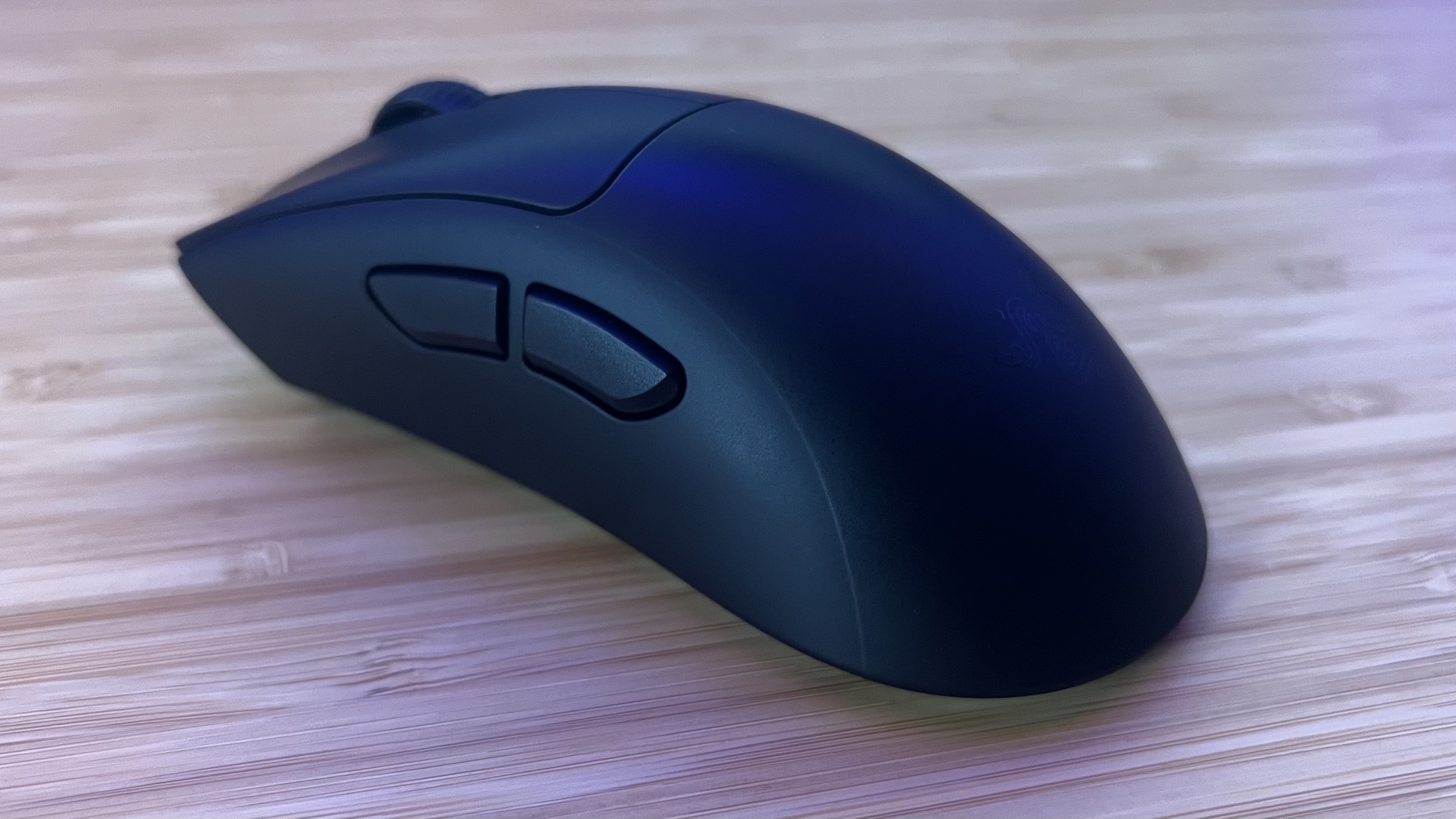
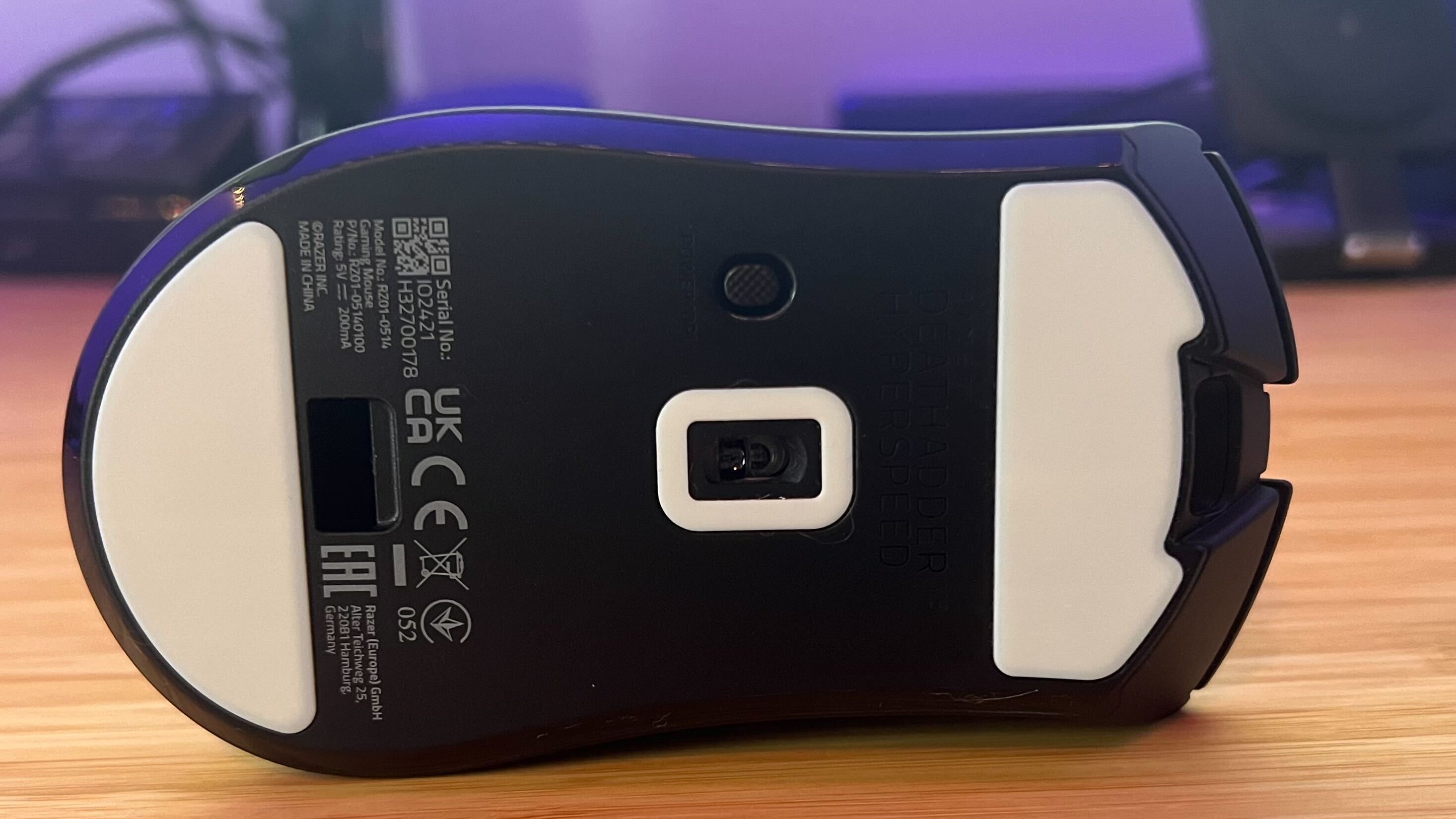
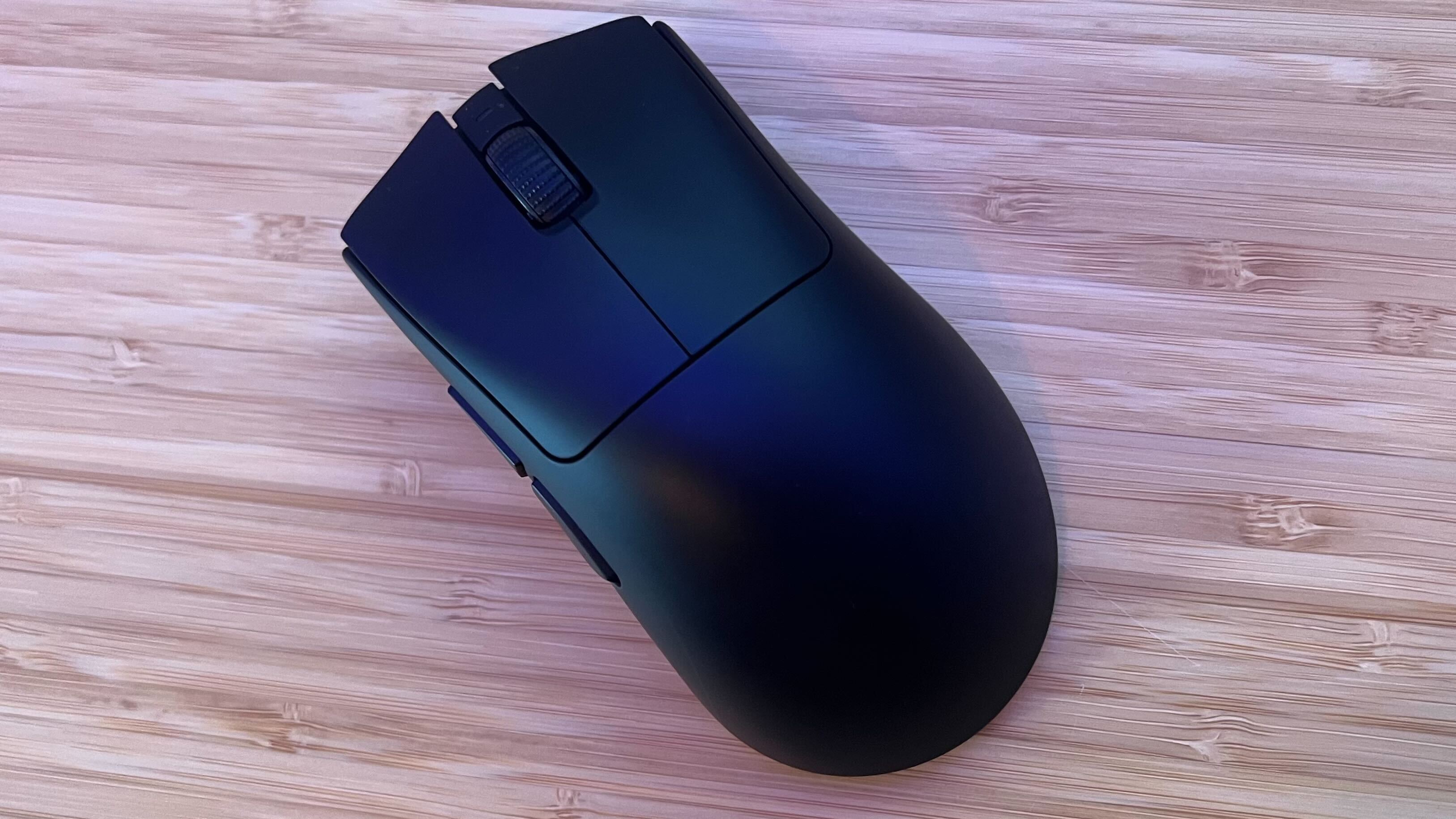
Specifications
Reasons to buy
Reasons to avoid
We live in an age where 8K hyperpolling and fancy sensor features dominate marketing materials. That's because high-end mice are generally aimed towards esports enthusiasts, sometimes leaving more casual players (and their lower budgets) wanting more. That's where the Razer DeathAdder V3 Hyperspeed comes in. This is a wireless device with a speedy sensor, some extra tricks up its sleeve, and a comfortable shape - all under $100 / £100.
✅ You don't want to break the bank: The DeathAdder V3 Hyperspeed is one of the cheapest Razer mice on the market - especially where that wireless connection is concerned.
✅ You need a wireless connection: Of course, you can spend less on a wired device, but if you don't want that cable holding you back this is the best value for money.
✅ You prefer a lightweight mouse: The DeathAdder comes in at just 55g, making it one of the lighter devices in Razer's current range.
❌ You prefer a textured surface: The softer matte finish doesn't make for a particularly tactile feel, though it's still grippy enough to keep up.
❌ You need a superlight mouse click: The switches under each main click are a little heavier than you'd find elsewhere - if you rely on speedy repeat presses you might be better off with another model.
Design: The Razer DeathAdder V3 Hyperspeed looks like a mixture of the Viper V3 Pro and the standard DeathAdder shape. There's a slight flare to the top, but it's far less noticeable than previous releases, and you're getting the same soft-touch matte plastic exterior as you would with flagship models. The device itself is a little shorter than previous versions, but still nestles nicely in the palm and offers a wider base than your traditional FPS-first mice as well. That means there's enough of a surface to support a range of hand sizes and grip types. Like other mice using this shinier finish, though, the main chassis can feel a little clammy in warmer environments.
Features: The DeathAdder V3 Hyperspeed also debuts Razer's latest sensor, the Focus X 26K. Its specs are more streamlined than the all-out models at the top of the price range, offering a 26,000 DPI, 500 IPS, and 1,000Hz polling rate straight out the box. The Hyperspeed can bump up to the full 8K on offer elsewhere if you grab the extra dongle separately, but those really are all the specs a casual player needs. Very few moments call for a DPI of over 10,000 let alone 26K, and you're going to have to be moving at an ultra-competitive level to need a faster reporting speed than 1,000Hz.
This is one of the DeathAdder's biggest strengths, though. It's cutting back on the features that most players simply won't use while also dropping the price considerably. You're left using the same settings and functions as you would be in a flagship model, but without spending $150. There's even a few extras thrown in, like dynamic sensitivity and sensor orientation tools.
Performance: This is still a super-fast mouse, with that 55g weight only adding to its nimbleness on the battlefield. Between more competitive Apex Legends endeavours and more considered Assassin's Creed: Odyssey runs, the DeathAdder V3 Hyperspeed kept its cool as a versatile but ultimately incredibly comfortable tool in the arsenal. The shape and size mean it's easily flickable in more twitch-reflex scenarios, but the crispness and ease of its main and side buttons make for an even more tactile experience overall.
Verdict: The Razer DeathAdder V3 Hyperspeed is easily one of the best Razer mice on the market - it's the best value wireless pointer we've tested so far out of every brand that's crossed our desks. Its focus on the features that casual players actually need, and the resultingly low price tag, make it a must-see for anyone looking to save some cash.
Read more: Razer DeathAdder V3 Hyperspeed review
Comfort | 4/5 | The DeathAdder line is one of Razer's most comfortable with its contoured edges and light form factor. |
Speed | 4/5 | There's a solid sensor hidden away in this low price, even if that 500 IPS takes things a step back from the Viper. |
Programmability | 3/5 | Two side buttons drop some of the functionality of cheaper wired models. |
Connectivity | 3/5 | There's a whole 2.4GHz connection packed into this very reasonable price tag, and it's a solid tether as well. |
Battery life | 4/5 | This is where you might expect to drop some points in a cheaper wireless device, but the DeathAdder V3 Hyperspeed can still run for up to 100 hours. |
Value | 5/5 | A comfortable form factor, wireless connection, and extra features casual players will actually use make this Razer's best value on the market. |
The best wired Razer mouse
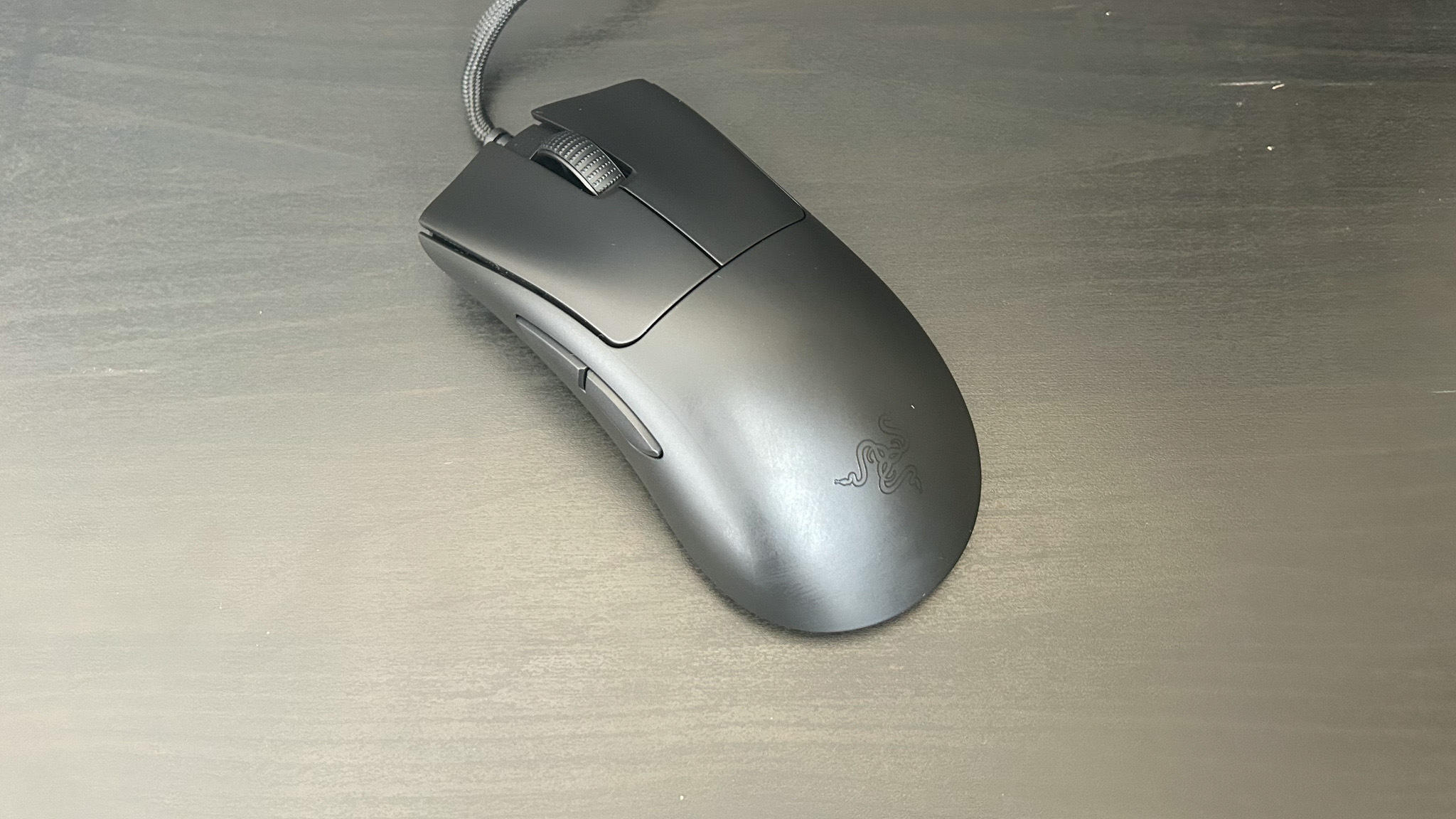
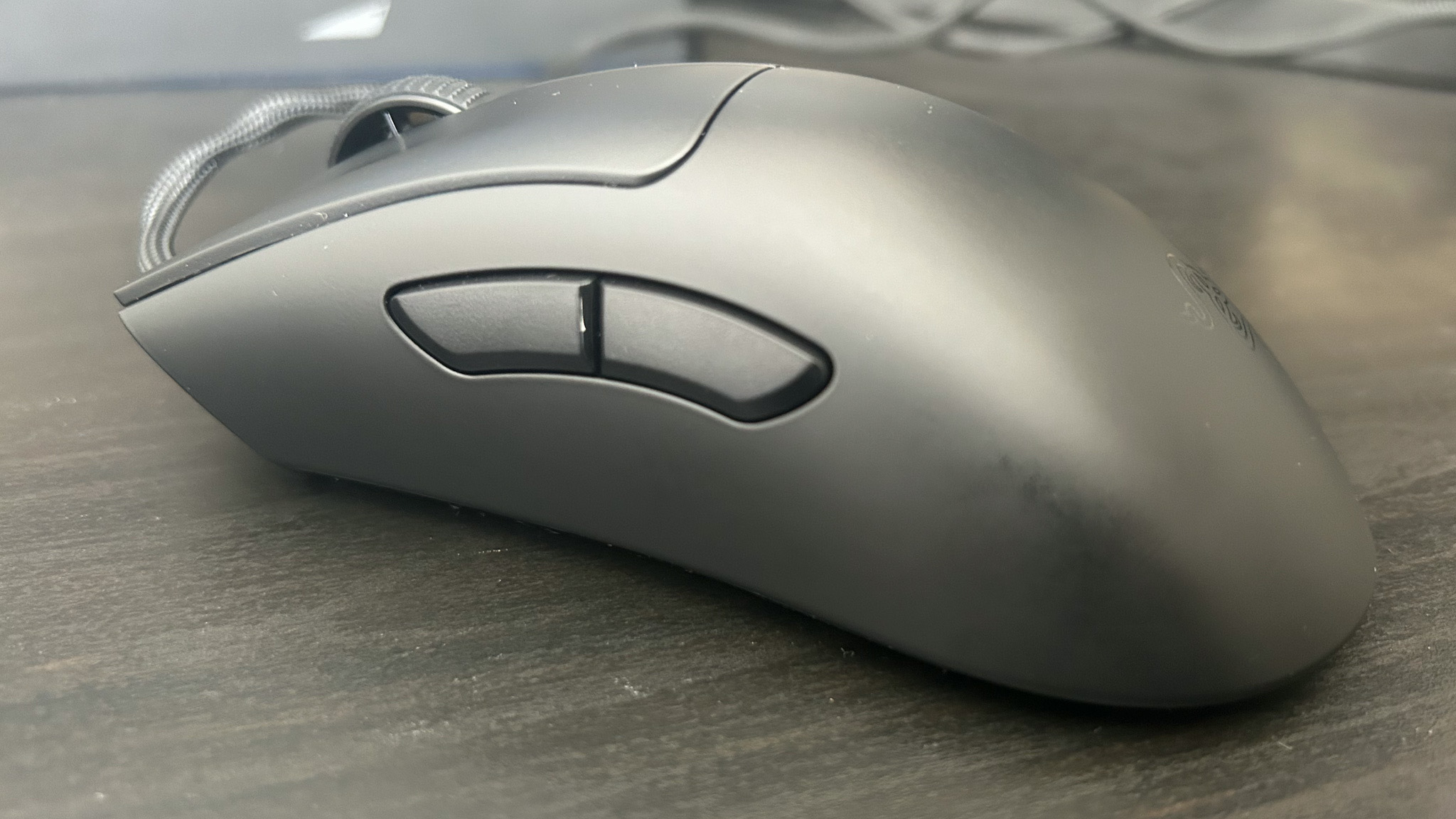
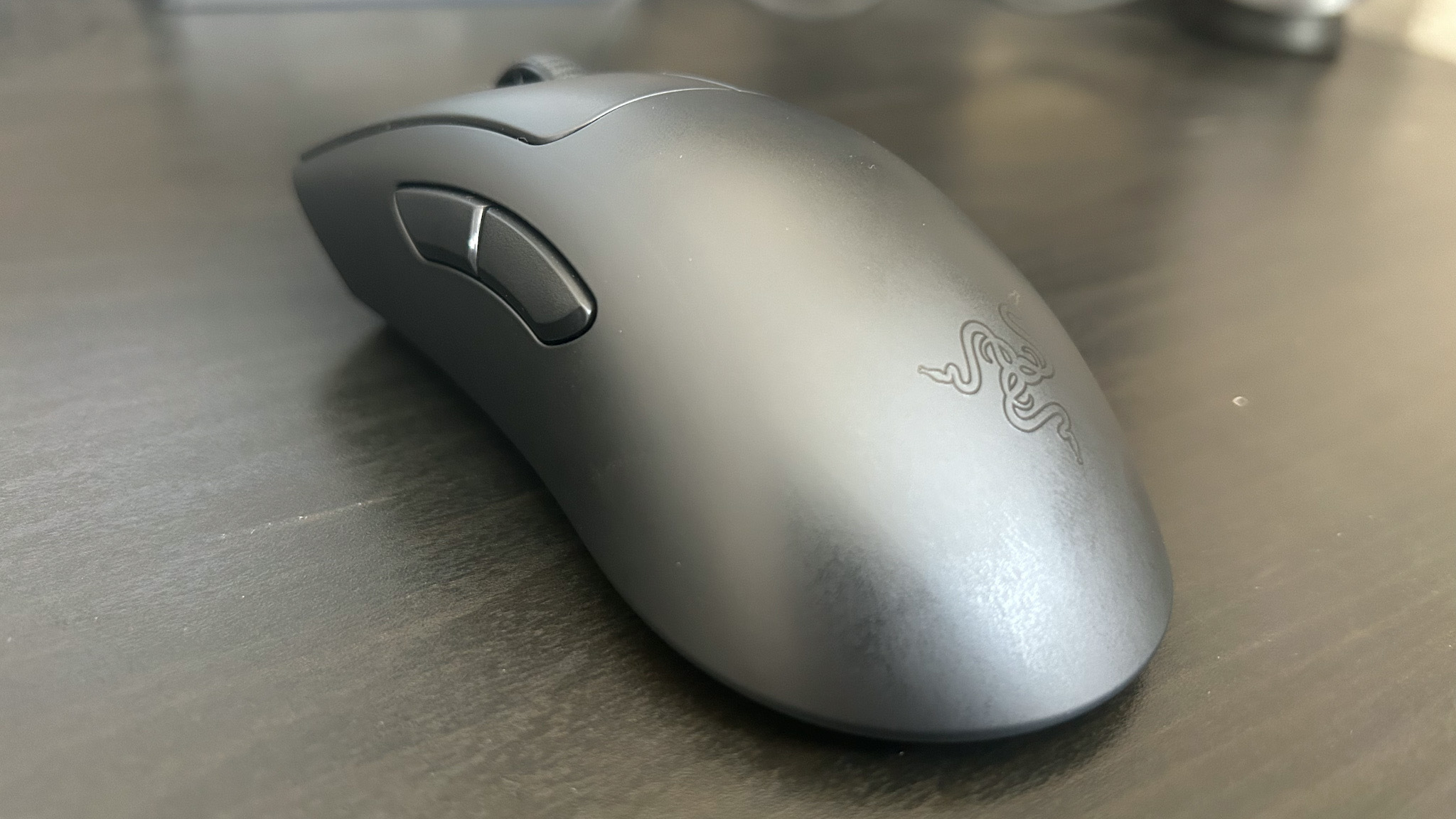
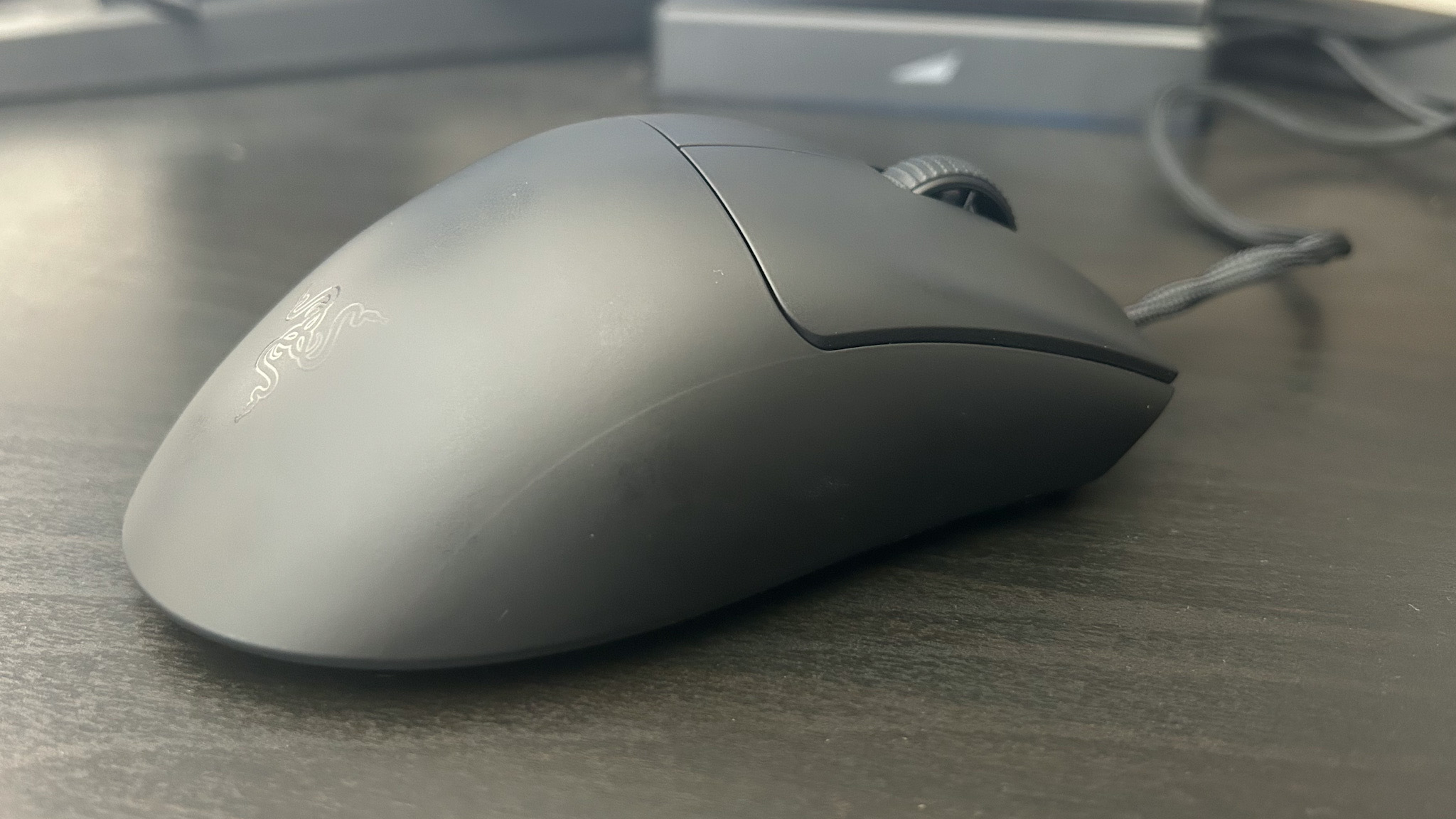
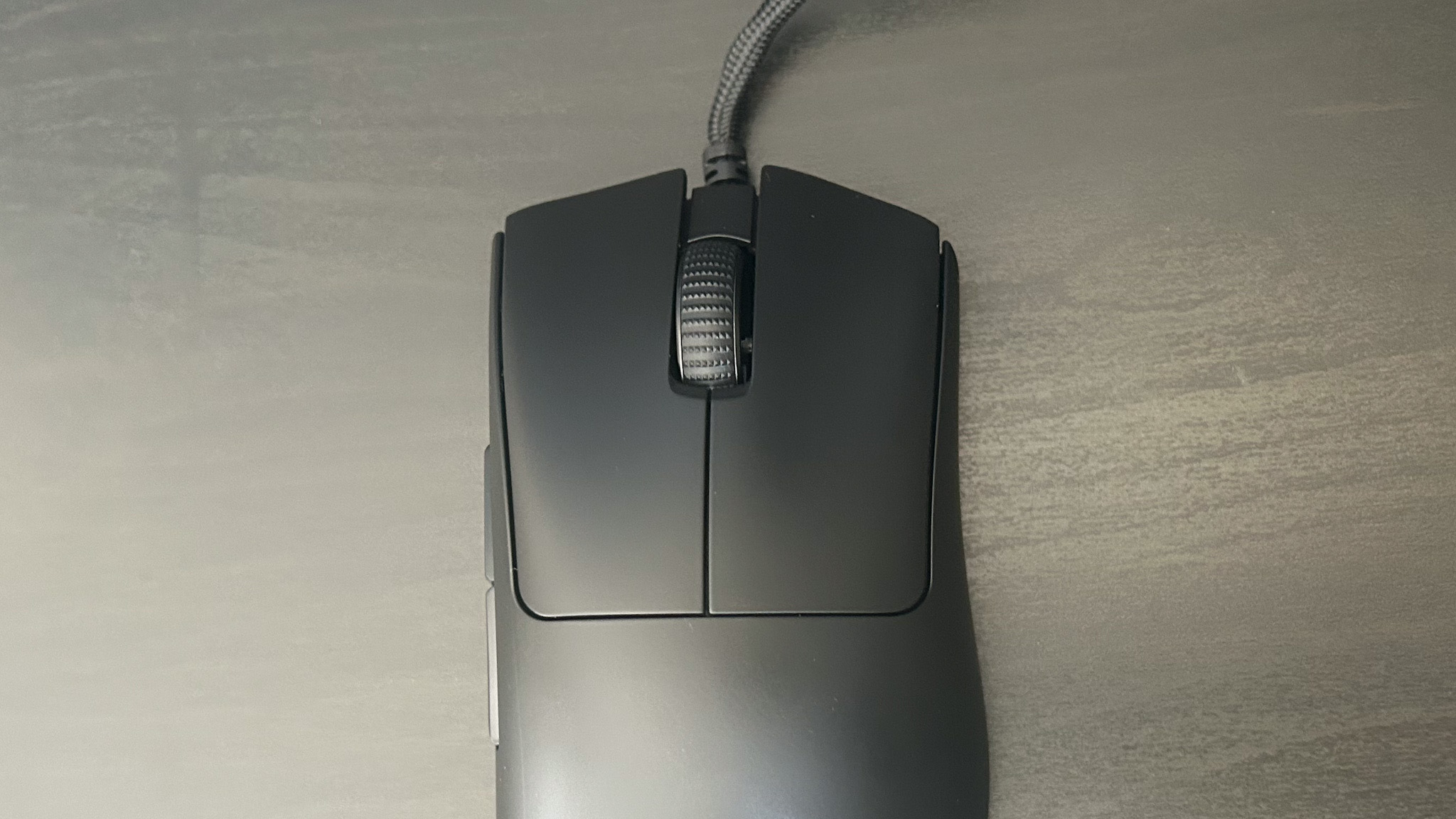
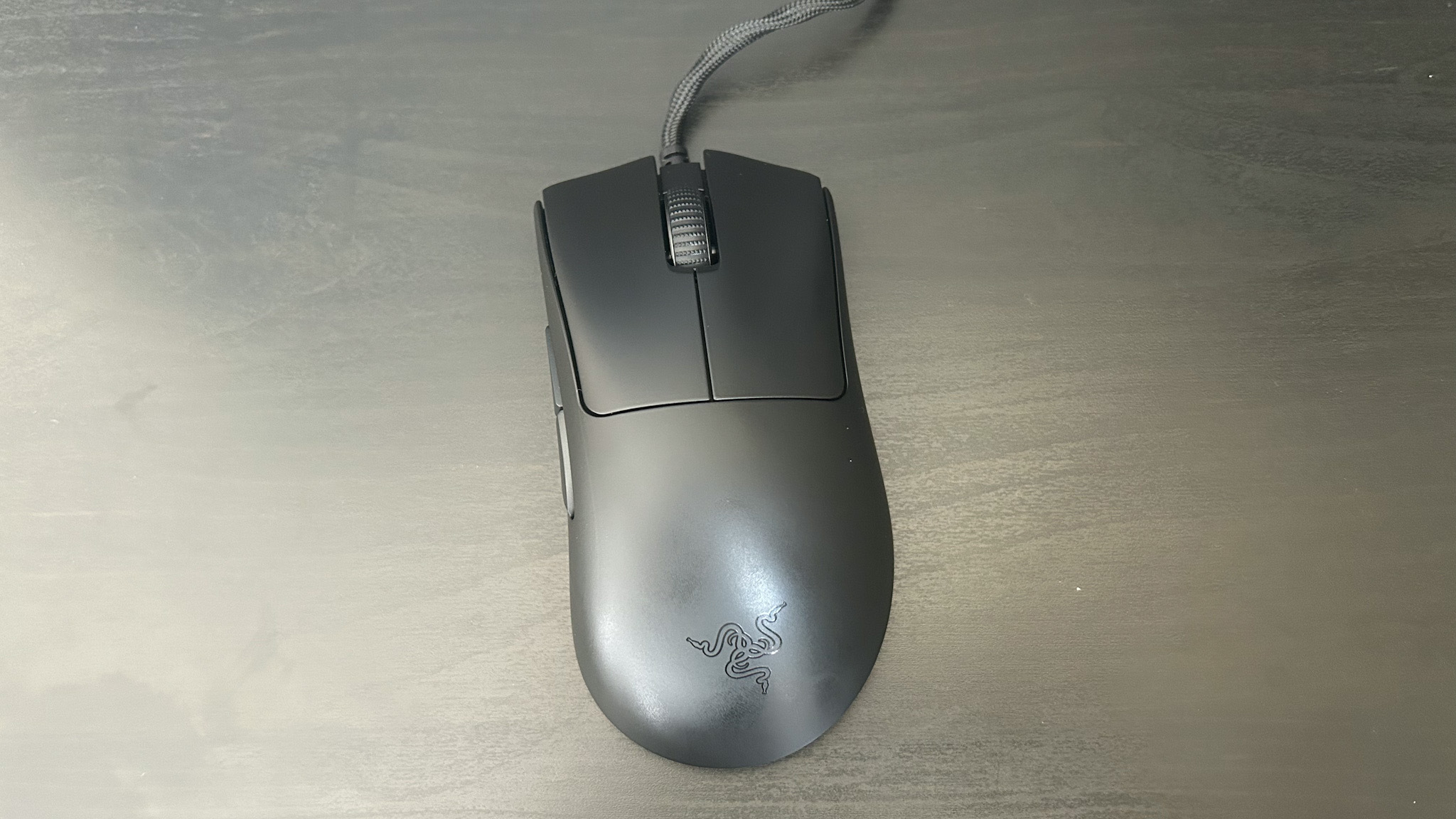
Specifications
Reasons to buy
Reasons to avoid
We called the Razer DeathAdder V3 an 'FPS mouse for those who hate FPS mice'. That's because it's a surprisingly lightweight pointer that doesn't achieve such a low weight simply by restricting things down to a skinny form factor.
✅ You have larger hands: The DeathAdder V3 manages to offer a chunkier form factor for larger hands while still keeping the weight low enough to perform well in FPS situations.
✅ You don't need a wireless connection: If you're going for pure speed, the wire tapering off the top of this device isn't going to cause too many problems.
✅ You don't like grip tape: The texture of grippy tape or rubber can get frustrating for some. The soft touch finish here, however, doesn't slip while still being comfortable to hold.
❌ You have smaller hands: The high dome and wider base means this isn't one for those with smaller hands.
❌ You want an RGB setup: Razer has dropped RGB from this model to keep that weight down, so if you're after a full Chroma experience you'll need to look elsewhere.
Design: Super light FPS mice like the Razer Viper V2 Pro above and the MSI Clutch GM31 are often particularly small, making for an uncomfortable experience for anyone with larger hands. However, the Razer DeathAdder V3 manages to pack a 59g footprint while still offering the chunky curves required for long term comfort. That shape won't work for everyone - in fact, it's geared slightly towards those with larger hands. However, it's a nippy pointer that manages to avoid the pitfalls of many lightweight gaming mice.
Features: The lower price does mean you're losing out on RGB support, and there are fewer programmable buttons here when compared to the similarly priced Razer Basilisk V3 model, but there's still plenty to love.
If you like the look of the DeathAdder but want a wireless connection, we'd recommend checking out the new Razer Viper V3 Hyperspeed. It's the same price, and keeps the larger dome shape of the DeathAdder line compared to the traditionally flat Viper range, all while a packing speedy 2.4GHz Hyperspeed connection.
Performance: You're getting Razer's latest generation sensor and switches under the hood as well as the lightning fast performance one can expect from such components. The chunkier form factor did infringe on the effects of that low weight here, though, especially if you're playing with smaller hands. Still, that sensor could keep up with everything from Apex Legends to The Witcher 3 in our testing.
A chunkier form factor makes for better long-term comfort than the skinnier designs often seen in these high-performance FPS mice.
Razer DeathAdder V3 review
Verdict: The Razer DeathAdder V3 isn't going to be for everyone, but it's a lightweight gaming mouse that caters to a far wider market than usual. The wired connection may be a deal-breaker for some, but Razer's super flexible cables keep things from feeling draggy. Those with larger hands are no longer left out of this race, and it's got the internal specs to back itself up as well.
Read more: Razer DeathAdder V3 review
Comfort | 3/5 | More FPS-first mice have adopted larger form factors in recent years, but the DeathAdder was the first to do so. |
Speed | 5/5 | A 59g weight means this if a super nippy rodent, and a 30K DPI sensor outpaces a lot of the mouse's competition. |
Programmability | 3/5 | You're limited two two side buttons here, as is the case with most FPS-first mice, but there aren't any RGB or sensor customization options open either. |
Connectivity | 2/5 | A braided cable means this is a sturdy wired connection, with little drag. |
Battery life | N/A | Row 4 - Cell 2 |
Value | 4/5 | If you don't want to cut the cord but still want a lightweight device, there's excellent value in this form factor. |
The most versatile Razer mouse
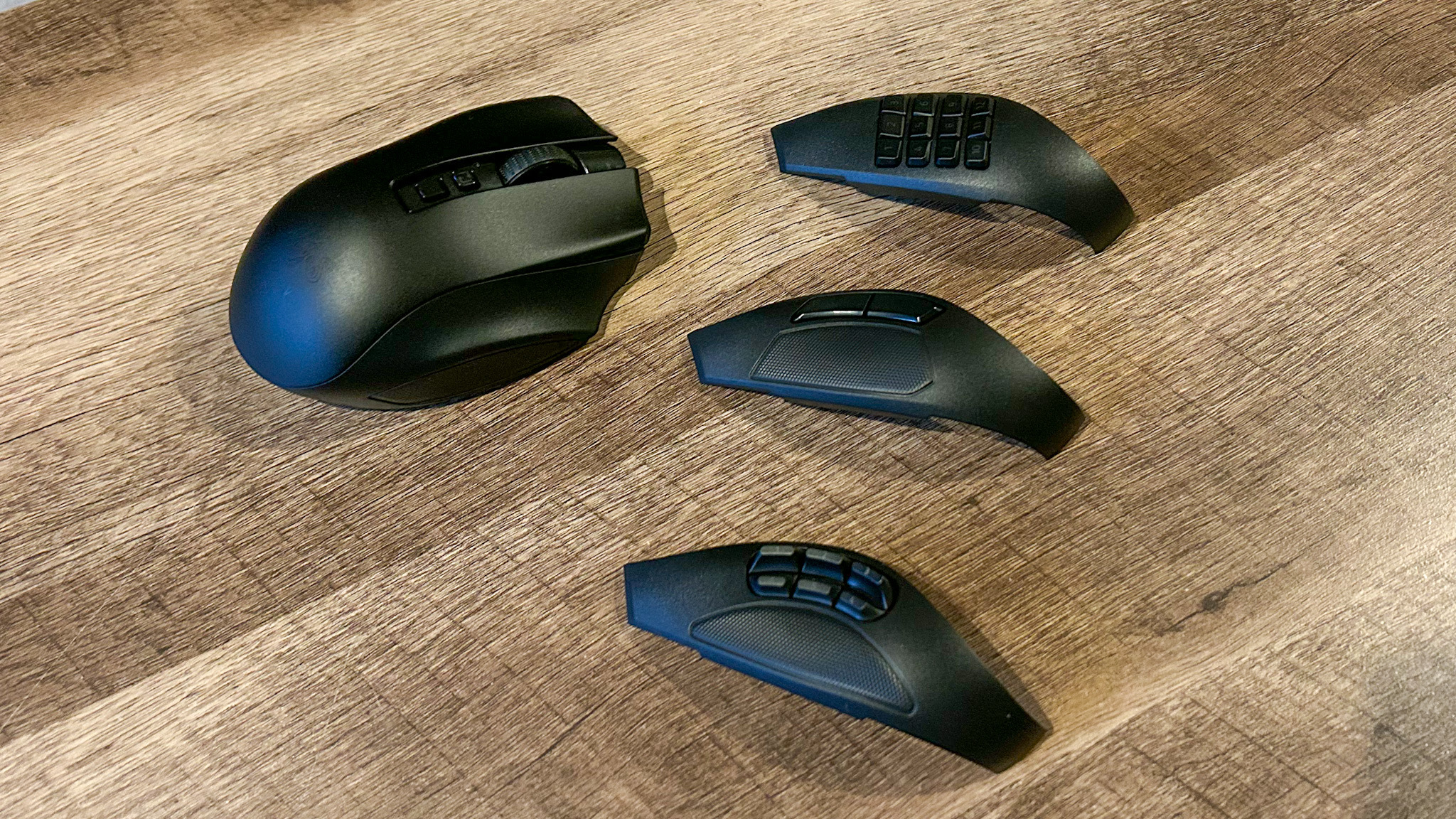
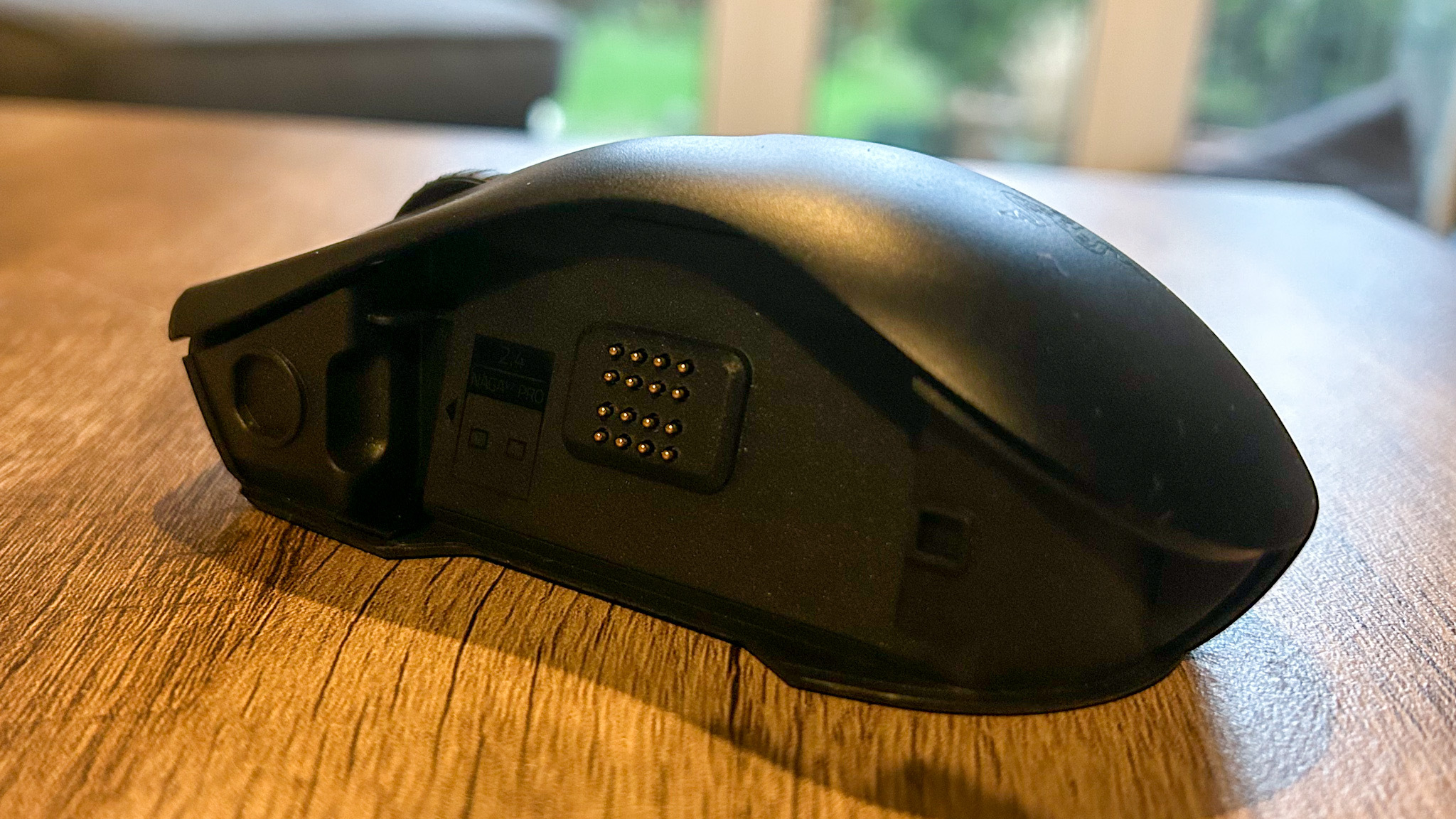
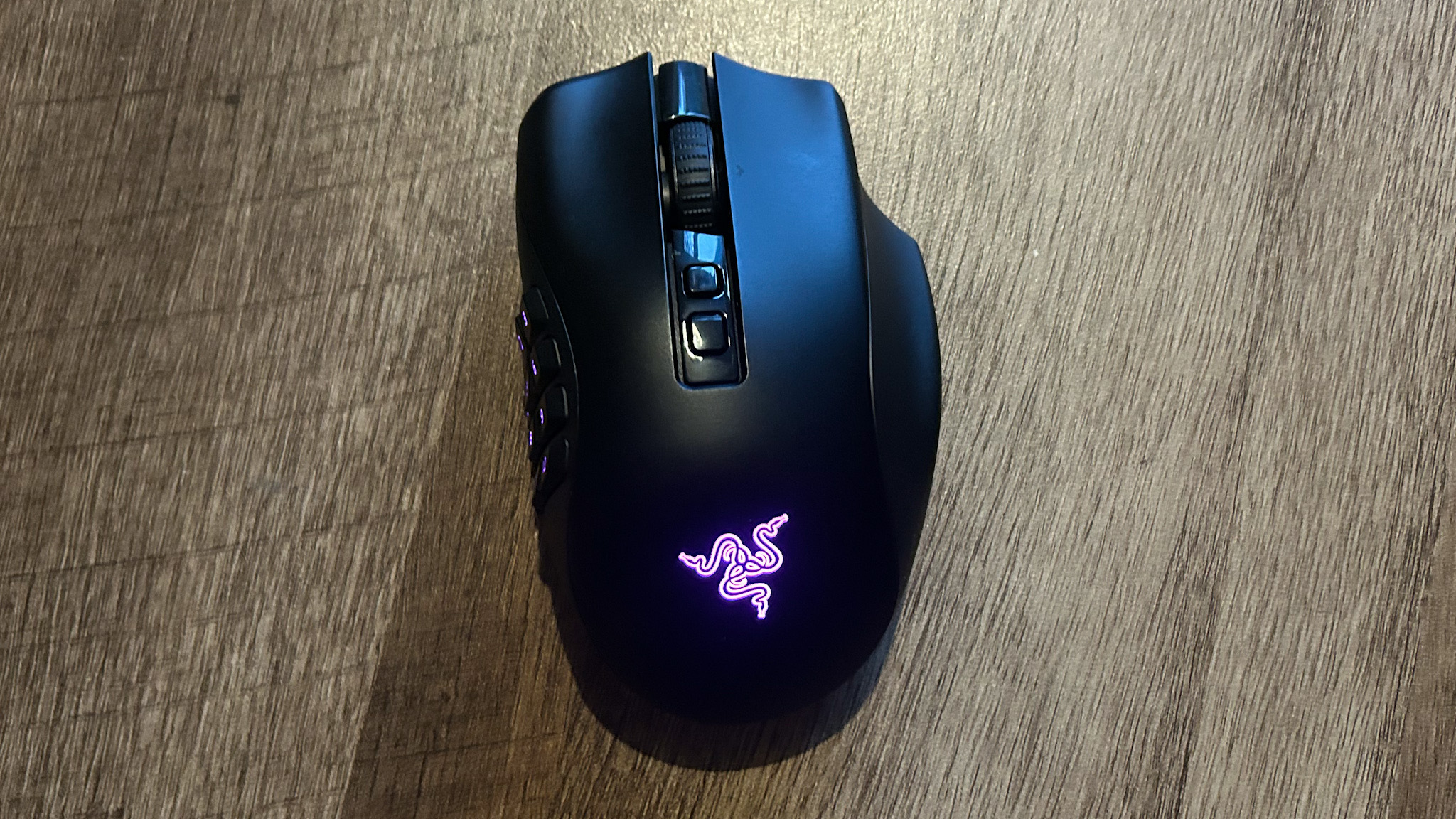
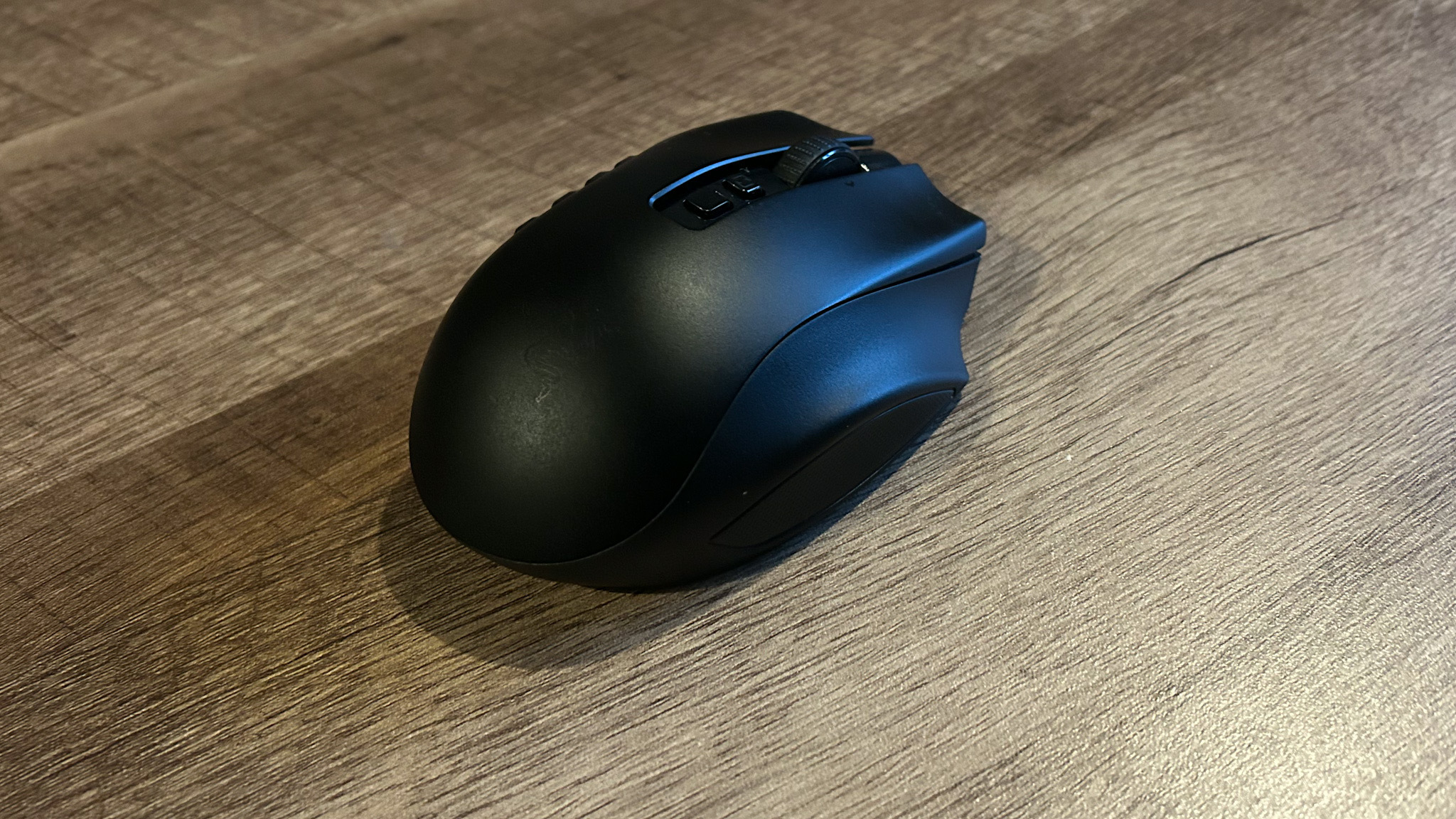
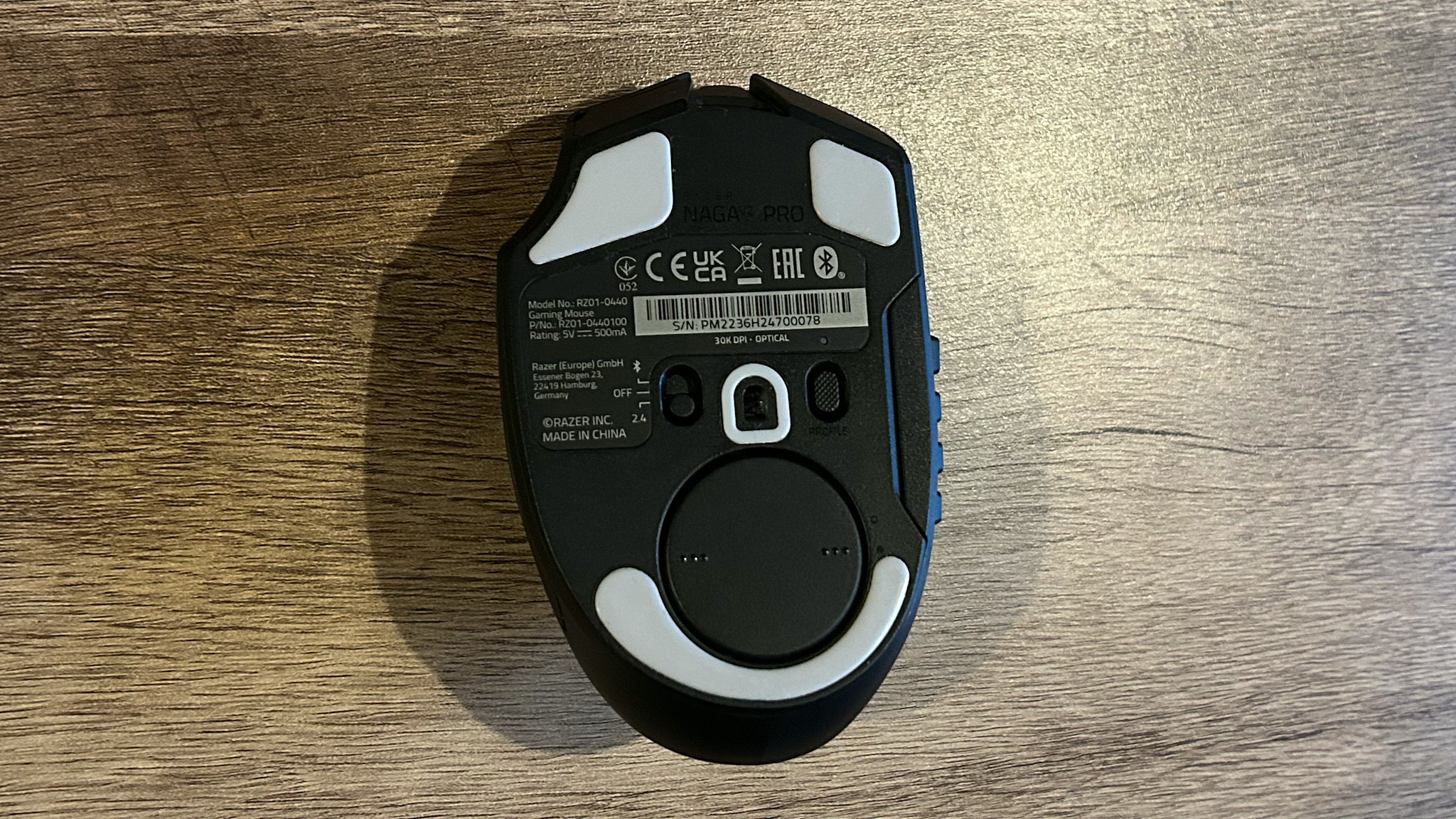
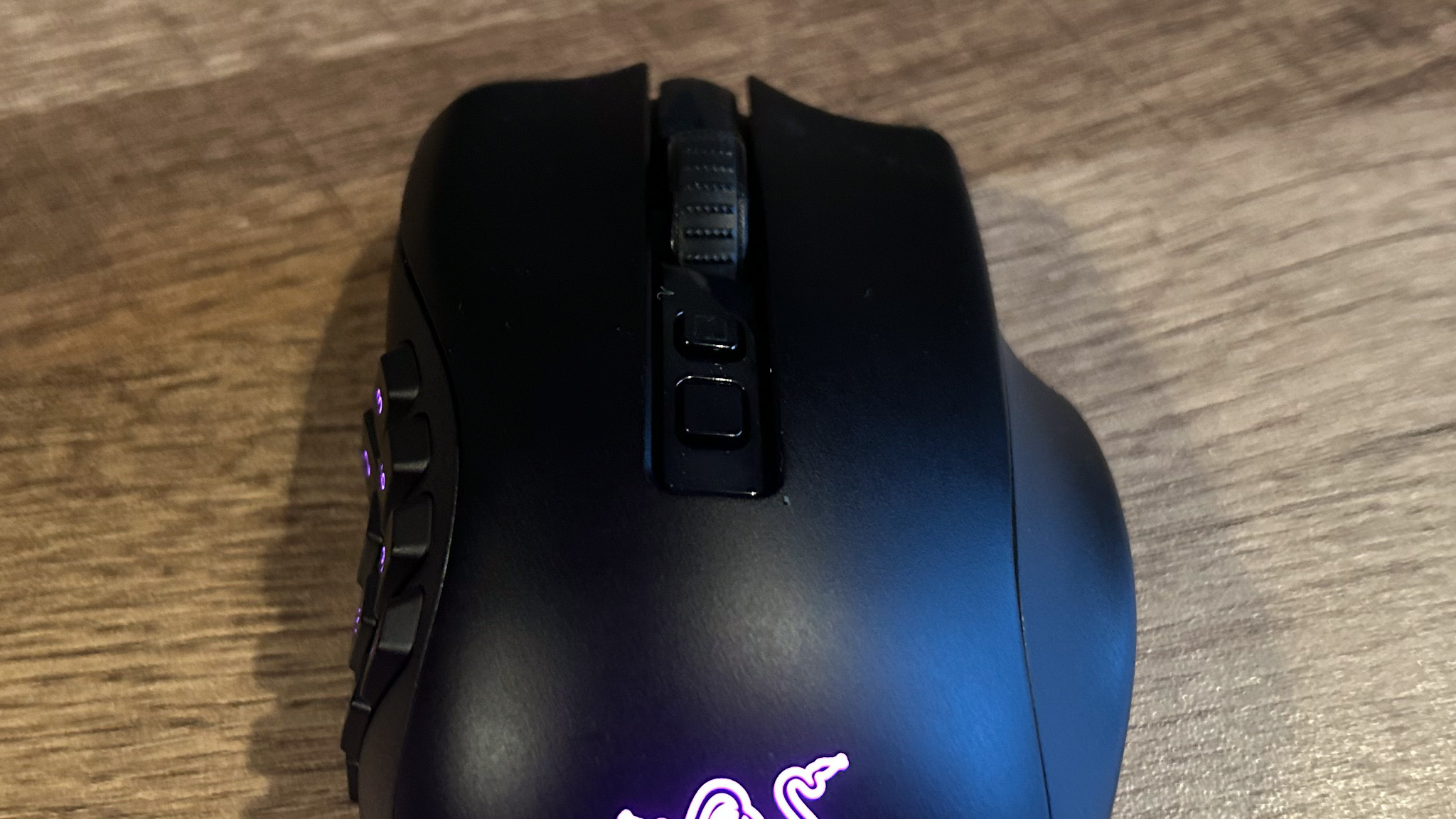
Specifications
Reasons to buy
Reasons to avoid
With its three swappable control panels, comfortable shape, and speedy internals, the Razer Naga V2 Pro is the most versatile Razer mouse on the market right now.
✅ You play a range of different genres: If you're not going to be swapping the sides out, there's little point in paying for the luxury of this kind of customization.
✅ You're investing in a long term mouse: The Naga V2 Pro certainly isn't cheap, so you'll need to get a few years use out of this pointer to really make it worthwhile.
✅ You don't mind a chunkier design: The heavier form factor could put a lot of players out here, it's just too chunky to zip across a battlefield. Still, if you've got larger hands or you prefer to be particularly grounded in your play it could turn into a benefit.
❌ You play faster paced games: The extra size of the Naga V2 Pro puts it out of the hands of those playing more competitive fast paced titles.
❌ You don't play MMOs: If you're not an MMO fan, there are far more options at cheaper prices that can offer greater comfort and speedier response times.
Design: The Nava V2 Pro doesn't look like other gaming mice, and that's not just from the side. This is a fairly squat design, with an exaggerated hump to the rear and a steep slope to the front. That's comfortable from the perspective of the wrist and the top of the hand, but it does make the entire experience a little cumbersome. This is a firm palm grip number, so you do lose some precision and speed in this form factor.
Features: Those swappable panels are the stars of the show here, offering excellent versatility and flexibility no matter what you play. From battle royales to MOBAs, it'll have your back/hand. Not only that, but we were glad to find that swapping between the panels is quick and easy; we were flying through our Steam library with only a second between each genre.
You've got a choice between a two-button, six-button, and 12-button side setup, opening you up to a maximum of 20 programmable buttons. Not only that, but there's two layers of programming here, allowing for a second round of commands to be assigned to each button on top. That's some fantastic customization that even stretches into the scroll wheel as well. This is the Razer HyperScroll Pro under the hood, which means six different presets of scrolling speed and style to choose from. Swapping between a tighter, heavier scroll and a free-wheeling spin, or creating your own style in Synapse 3, there's something for every action available. In our testing, we did find this a more useful feature in productivity uses than everyday play, but it's still a nice to have feature.
It's not only the most versatile gaming mouse on the market today, but the highest quality model offering such versatility as well.
Razer Naga V2 Pro review
Performance: We found that the Nava V2 Pro performed across a wide range of genres, even if that shape held it back in truly competitive endeavours. In fact, this Razer mouse performs at its peak right in the middle. Slower action adventure titles and MMO options are the go-to here, giving those programmable buttons and that speedy sensor a chance to flourish.
Verdict: The Naga V2 Pro is, on paper, a better Razer mouse than the Basilisk V3 with its slick sensor and endless customization options. However, it comes in considerably more expensive, and offers a feature-set that just won't be valuable to everyday players. However, if you've got a healthy Steam library spanning multiple competitive genres, it's going to be a game-changer.
Read more: Razer Naga V2 Pro
Comfort | 3/5 | The smaller shape and high dome make this a comfortable choice for certain hand sizes, but it's not going to fit all. |
Speed | 2/5 | This is a particularly heavy device, so while its sensor looks strong it's not going to be as nimble on the battlefield as others. |
Programmability | 5/5 | With the 12-button side panel attached you've got a massive number of extra inputs to play with. |
Connectivity | 4/5 | The Naga packs both a 2.4GHz and Bluetooth wireless connection for excellent versatility. |
Battery life | 5/5 | The Razer Naga V2 Pro lasts for between 100 and 150 hours, an excellent charge time considering the average tends to hit between 80 and 110. |
Value | 3/5 | This is a pricey pointer, so you'll need to know you'll make the most of its modular design. |
Also tested
Razer Cobra Pro | Available at Amazon
The Razer Cobra Pro is a fantastic everyday workhorse across a range of genres, it's just not as versatile as the Naga V2 Pro or as fast as the Viper V3 Pro. While it's still a worthy investment, its jack-of-all-trades nature means it doesn't excel in a particular use-case.
Read more: Razer Cobra Pro review
Razer Viper V3 Hyperspeed | Available at Amazon
The Razer Viper V3 Hyperspeed treads on the Basilisk V3's value-busting price tag, but is more geared towards competitive sensor tracking than everyday play. That's slightly undercut by the slower clicks, though, which means it just falls short of a spot on this list.
Read more: Razer Viper V3 Hyperspeed review
Razer Viper V2 Pro | Available at Amazon
With a falling price tag (since the V3 Pro hit the shelves anyway), the Razer Viper V2 Pro is still a fantastic option for those after an FPS-first gaming mouse without the three-figure price. This was at the top of our list before it was replaced by the V3 Pro on Razer's shelves.
Read more: Razer Viper V2 Pro review
Razer DeathAdder V2 X | Available at Amazon
One of Razer's more recent entries into the budget space, the DeathAdder V2 X parries with the Basilisk V3 in terms of price, but does so with a lower quality sensor and fewer programmable buttons. Its contoured shape may prove more comfortable to some, though.
Read more: Razer DeathAdder V2 X review
Razer DeathAdder V3 Pro | Available at Amazon
The Razer DeathAdder V3 Pro goes up against the Viper V3 Pro in the flagship category but is heavier and features an older Focus Pro 30K optical sensor.
Read more: Razer DeathAdder V3 Pro review
Razer Basilisk V3 Pro | Available at Amazon
The Razer Basilisk V3 Pro is the brand's answer to heavier wireless options like the Logitech G502, but it comes in with a pretty substantial price tag which can easily be beaten across the market these days.
Read more: Razer Basilisk V3 Pro review
How we test Razer mice
The process for hunting down the best Razer mouse is the same as it is for any brand. These pointers are brought into our daily work and play schedules, and lived with far beyond our initial testing sessions. That means we can see exactly how each device holds up in an everyday use scenario while also keeping tabs on the longevity of those features.
Design is tested across both a comfort and aesthetic perspective. We test each mouse in-game across all three major grip types; fingertip, claw, and palm, assessing ergonomic shape, weight, click feel, and button placement. We stress test the shape of each mouse by using them for multiple work days in a row, with dedicated game testing in the evenings as well. Of course, we're also keeping a close eye on build quality, pushing for any flex, rattle, or creaking in the main chassis or click areas as well as noting the placement and durability of extra cables, connections, and underside buttons.
Battery life is tested with both full RGB and a mouse's most efficient settings, running the device all the way down from its first charge out of the box. On top of that, we also run each Razer mouse through every possible software configuration available in Synapse.
We're always testing accuracy, speeds, debounce, and response times as standard, but we're also making sure that the shape and design lends itself to long sessions and provides easy access to any additional buttons as well. On top of that, we're constantly checking for signs of wear and tear from standard use, which could suggest a longer-term durability concern.
Once we have fully reviewed a Razer mouse, we assign it a score out of five across six categories; comfort, speed, programmability, connectivity, battery life, and value. These scores are then cross-referenced with the rest of the market to determine a device's positioning within the ranks. A model must hit full marks in at least one of these categories to be considered one of the best Razer mice on the market.
You can read more about our commitment to providing honest recommendations through extensive testing in our Hardware Policy, and we're also showing you exactly how we test gaming mice in more detail as well.
How to choose a Razer gaming mouse
Why you can trust GamesRadar+
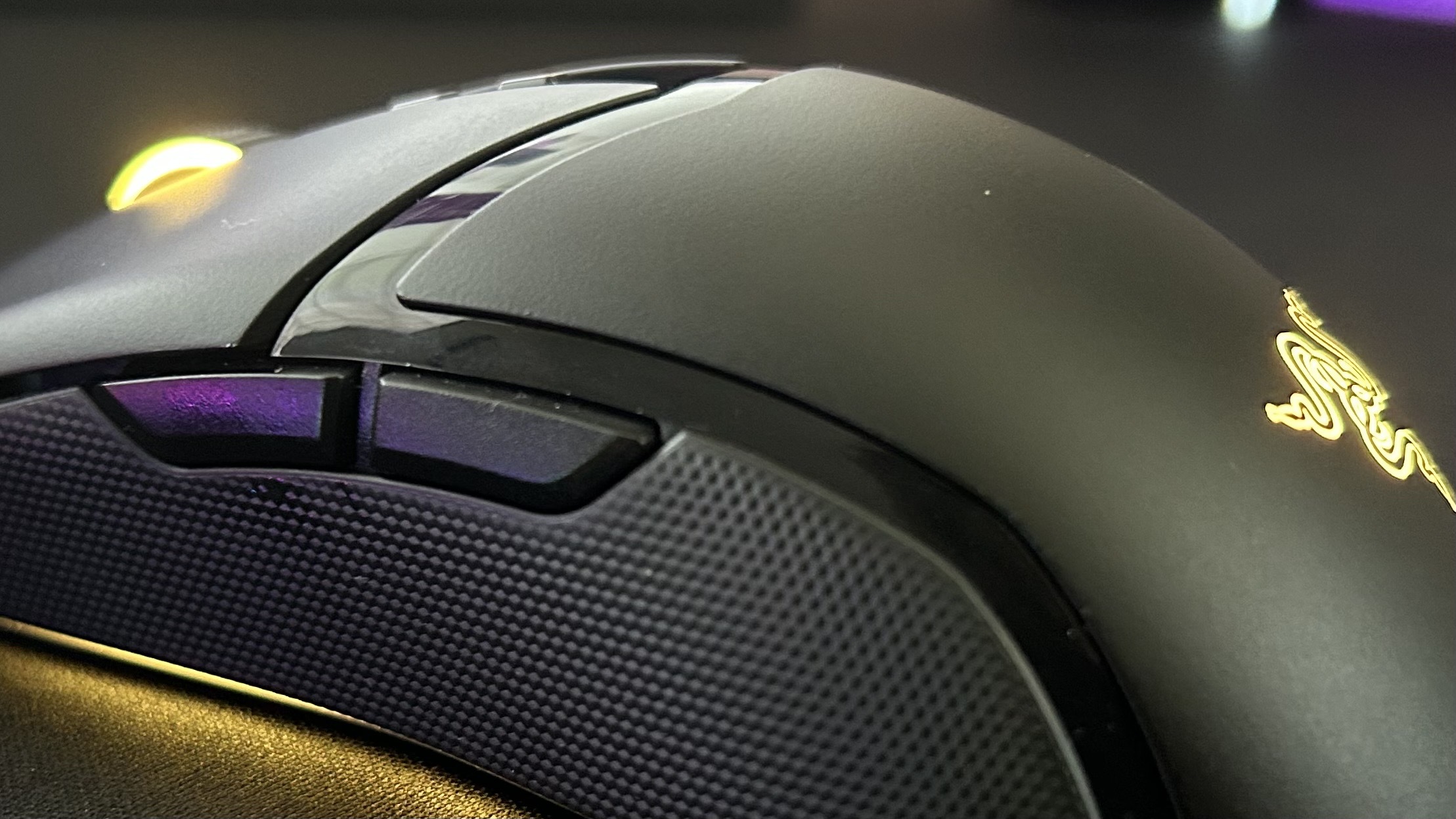
The first thing you'll want to consider when choosing a Razer mouse is your budget. There are two tiers of pointers in this range, the premium Pro series and the cheaper X line. Whenever Razer releases a flagship in the former, it will usually follow up with a more budget-friendly alternative further down the price scale, which is why there are so many Viper, DeathAdder, Basilik, and Naga pointers on the market at any one time.
If you're happy to spend between $150 and $170, you'll be at the very top of the brand's pricing spectrum. If you want to stick to a $30 - $50 budget you'll be at the bottom, with wired models and older releases. You'll find excellent value in the middle - Razer mice between $60 and $100 can offer wireless connections with plenty of fancy features, but just won't top the charts for speed.
Once you know how much you want to pay it's time to consult your hand. When you use any mouse, you'll generally fall into one of three grip types. If you place your hand flat on the mouse, maintaining contact across your entire palm and keeping your fingers straight, then you use a palm grip. You'd benefit from a wider base like the Razer DeathAdder or Basilisk, with a taller dome and longer form factor.
If you keep the base of your palm pressed against the bottom of the mouse, but curve your fingers over the top of the body and onto the main clickers then you use a claw grip. This is a fairly versatile hold, but it still benefits from a slightly wider body and an indented groove on the left flank to maintain control. Razer mice that suit this grip are the Basilisk, DeathAdder, and Naga line.
If leave a gap between the actual mouse and your hand (your palm never touches the body of the mouse) and apply more pressure with your thumb and fingers then you use a fingertip grip. You'll want a mouse that prioritizes a low weight and smaller design to maintain better control over the device, which means a Viper or Cobra are best suited.
Best Razer mouse FAQ
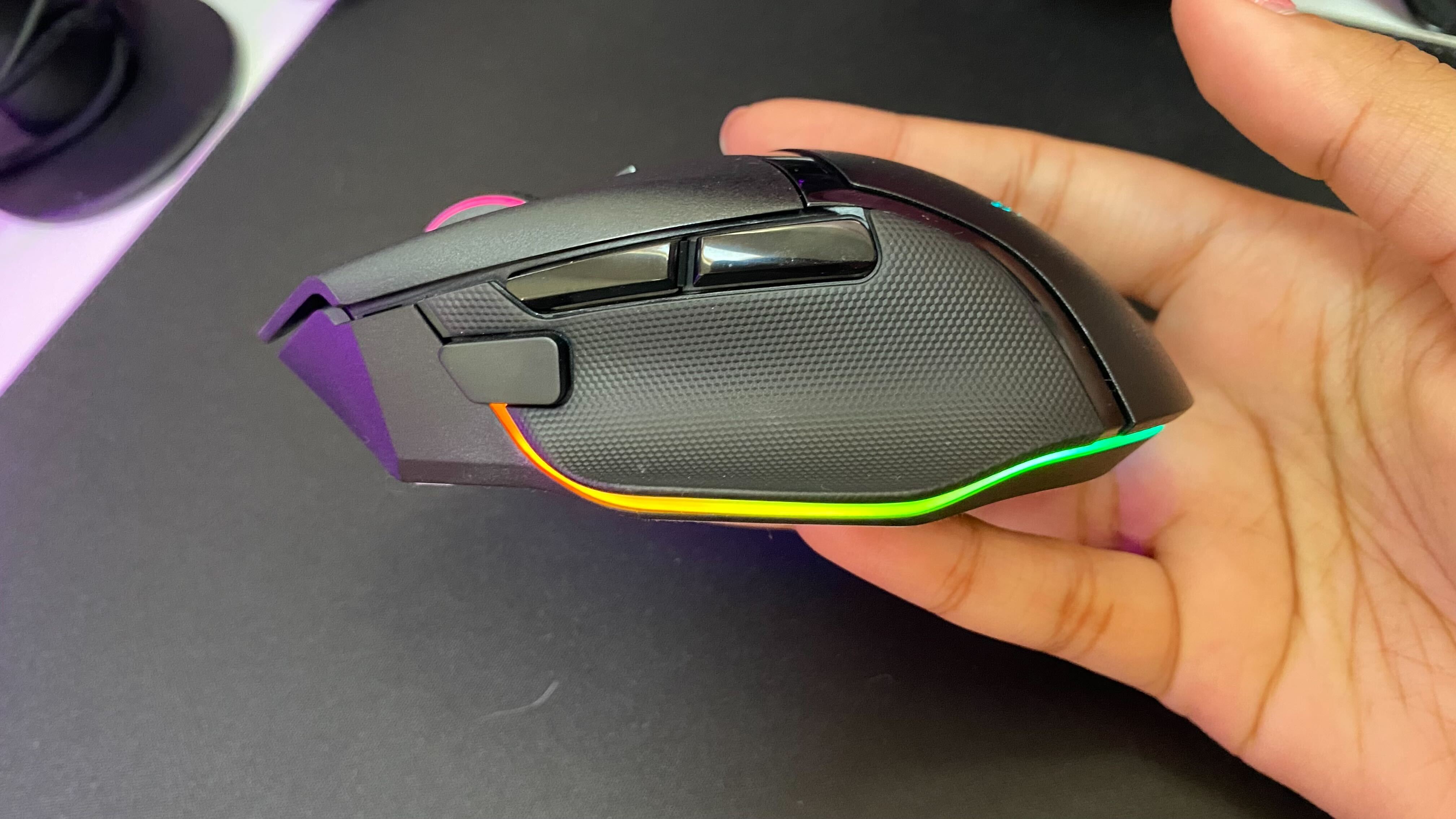
What is the best Razer mouse?
The best Razer mouse in 2025 is the Razer Viper V3 Pro, a wireless pointer which launched in April 2024 for $159.99 / £159.99.
Are Razer mice better than Logitech?
This is going to vary from person to person, but in general I find that Razer mice tend to offer better specs for your cash than Logitech - even if they're not better overall everytime. Logitech has a much wider range of mice on the shelves, which means you're more likely to be able to find what you need, be it the right price point, shape, or button configuration. However, comparing like-for-like flagships like the Razer Viper V3 Pro and Logitech G Pro X Superlight 2 does show that performance and features under the hood tend to stick on Razer's side.
What is the latest Razer mouse?
The latest Razer gaming mouse is the Basilisk V3 Pro 35K, released in October 2024.
Which Razer gaming mice are available?
There are several Razer gaming mouse lines available right now, ranging from the ultralight FPS models like the Razer Viper to the button-heavy MOBA killers like the Naga Pro. Razer often splits each range into budget, flagship, and premium models, with an X denoting the cheaper options and a 'Pro' added to the names of more expensive pointers. When finding the best Razer gaming mouse for you, it's worth digging into which models perform best under different gaming conditions and grip styles. You'll find all the current lines of Razer gaming mice, their ideal grip styles, and the latest models available just below.
Line | Grip style | Latest model |
|---|---|---|
Viper | Claw, Fingertip | Razer Viper V3 Pro (2024) |
DeathAdder | Palm, Claw | Razer DeathAdder V3 Hyperspeed (2024) |
Mamba | Palm, Claw | Razer Mamba Elite (2018) |
Naga | Palm | Razer Naga V2 Pro (2022) |
Orochi | Palm, Fingertip | Razer Orochi V2 (2021) |
Basilisk | Palm, Claw | Razer Basilisk V3 Pro 35K (2024) |
We're also rounding up all the latest cheap gaming mouse deals and the best Logitech gaming mouse models for more options. Or, for a full setup refresh, check out the best gaming keyboards and best gaming headsets - we're also rounding up the best Razer keyboards specifically as well.
Sign up to the GamesRadar+ Newsletter
Weekly digests, tales from the communities you love, and more

Managing Editor of Hardware at GamesRadar+, I originally landed in hardware at our sister site TechRadar before moving over to GamesRadar. In between, I've written for Tom’s Guide, Wireframe, The Indie Game Website and That Video Game Blog, covering everything from the PS5 launch to the Apple Pencil. Now, i'm focused on Nintendo Switch, gaming laptops (and the keyboards, headsets and mice that come with them), PS5, and trying to find the perfect projector.
